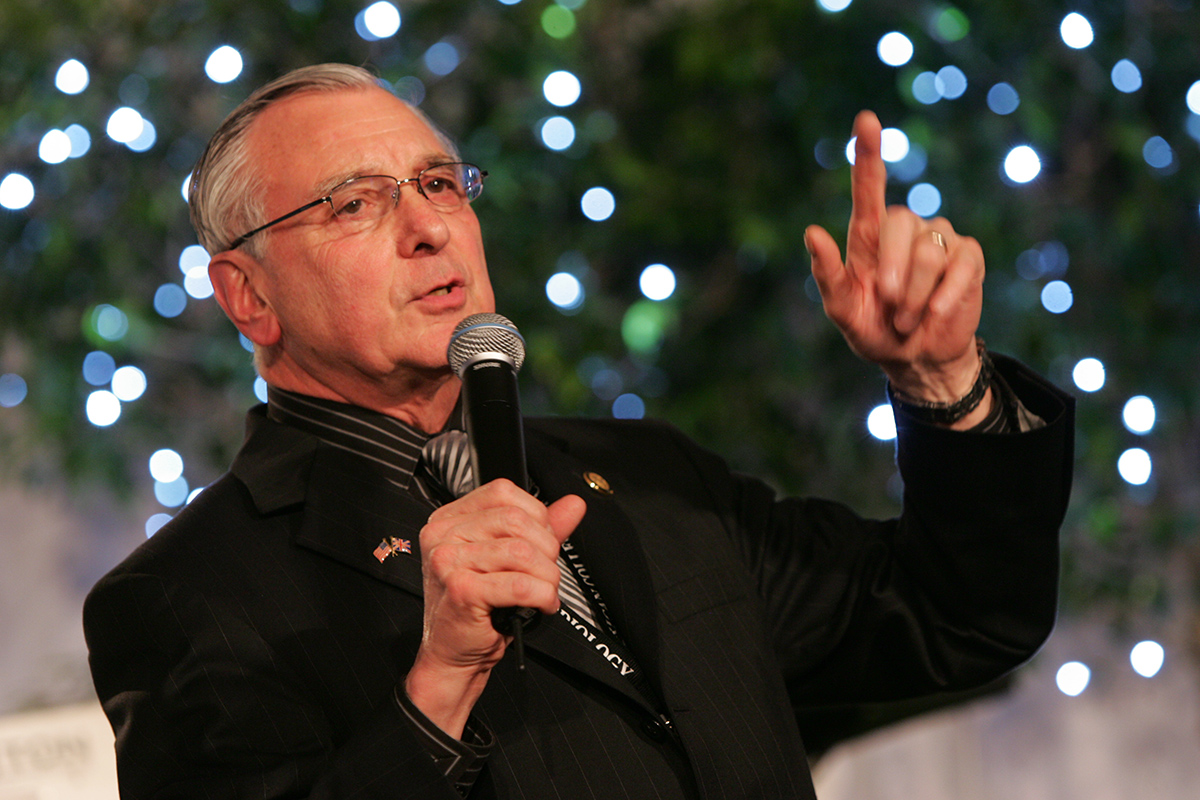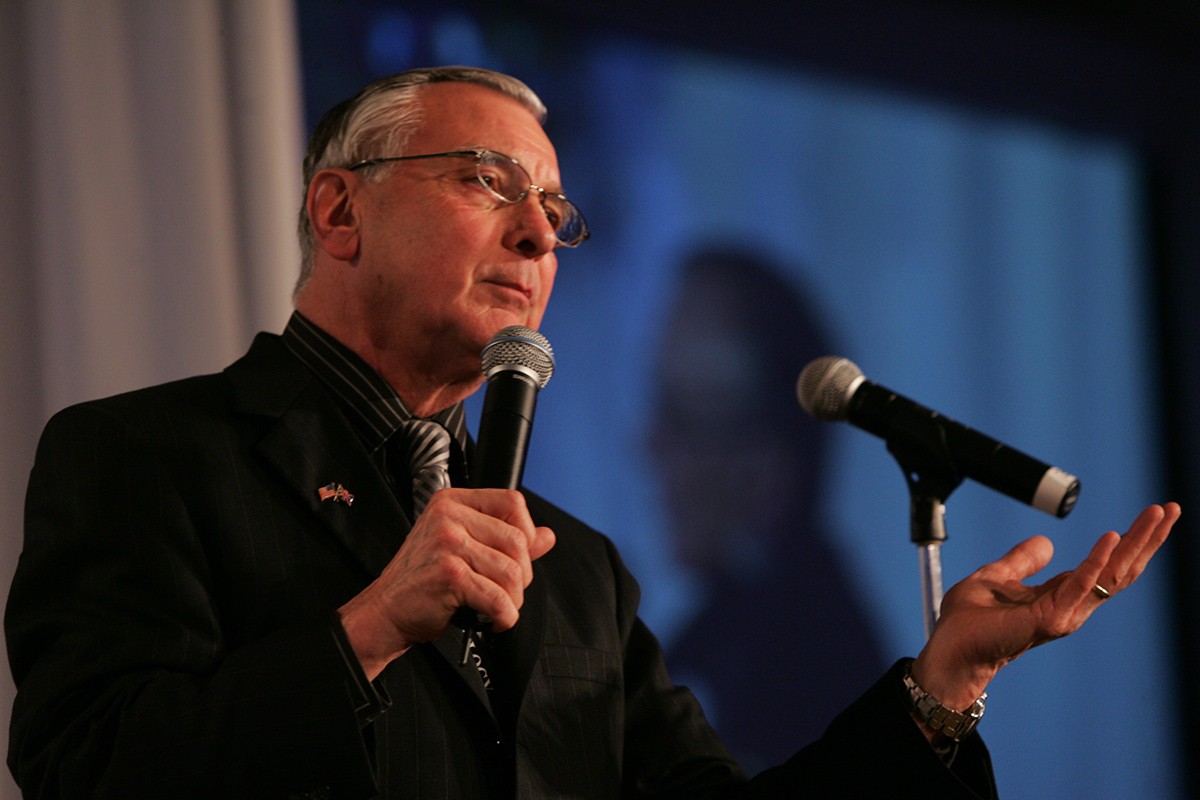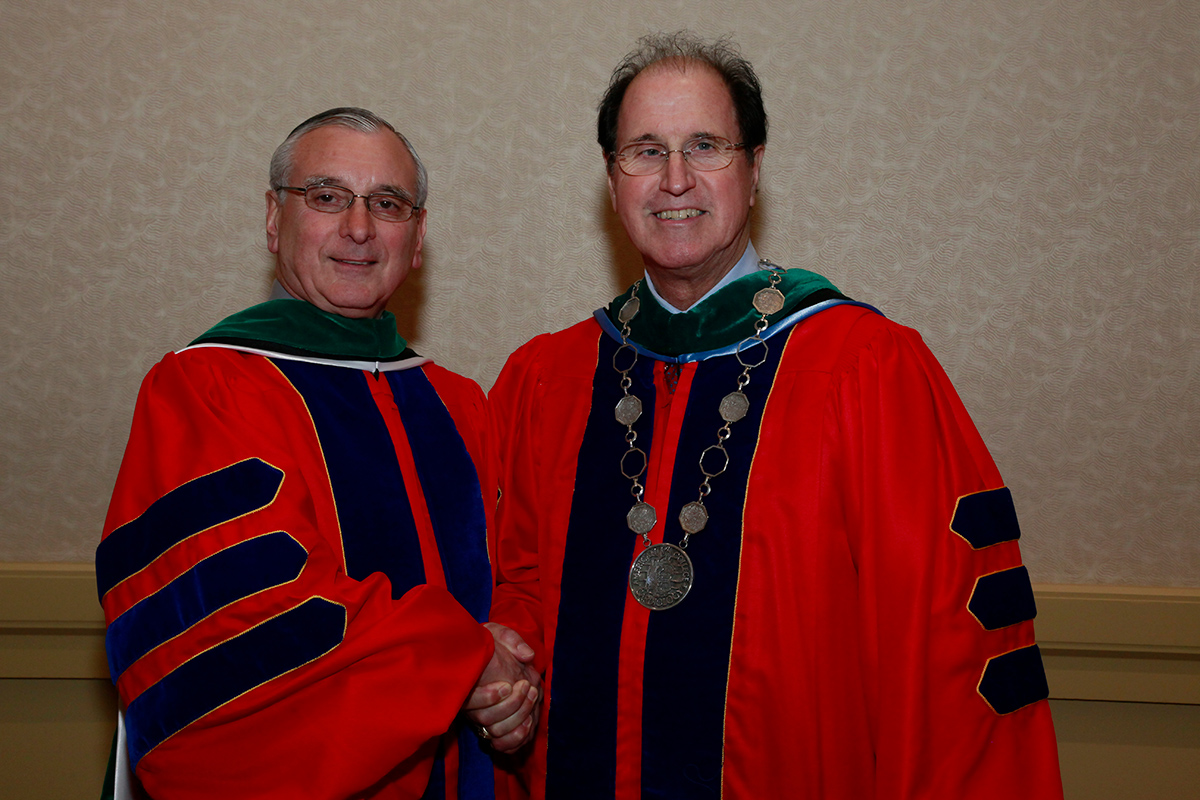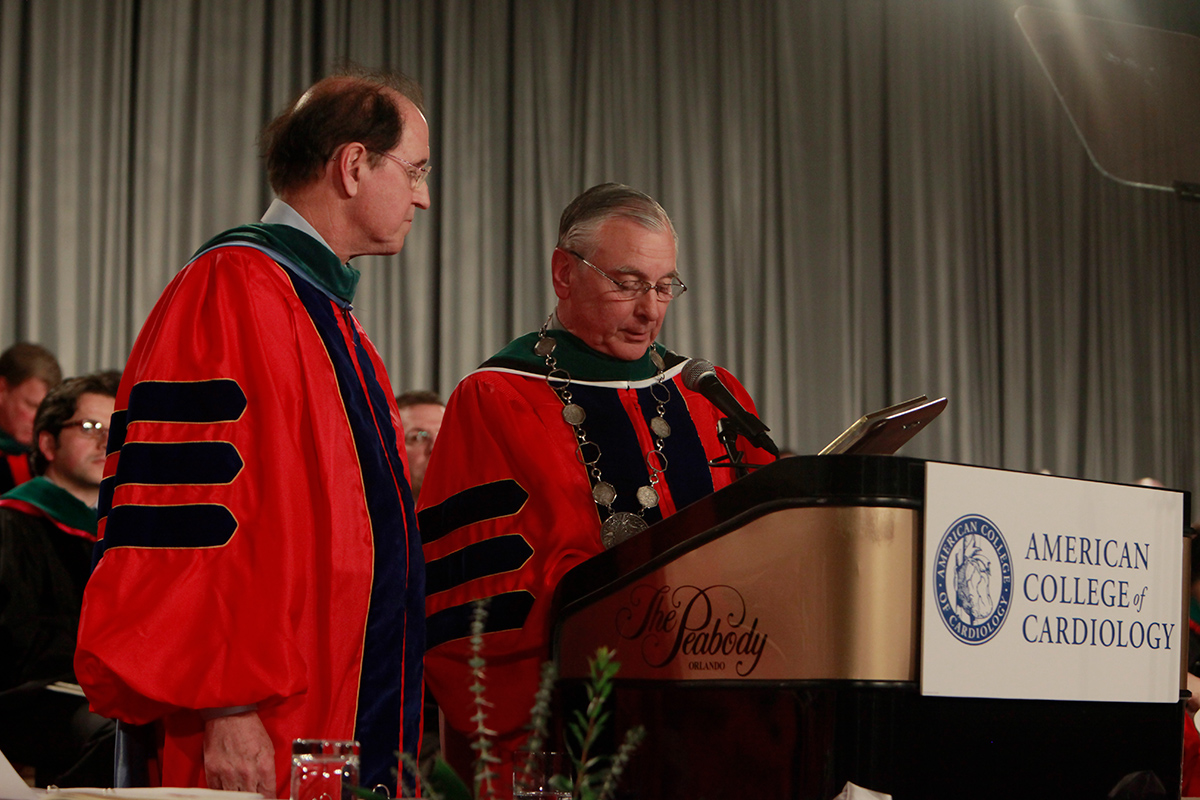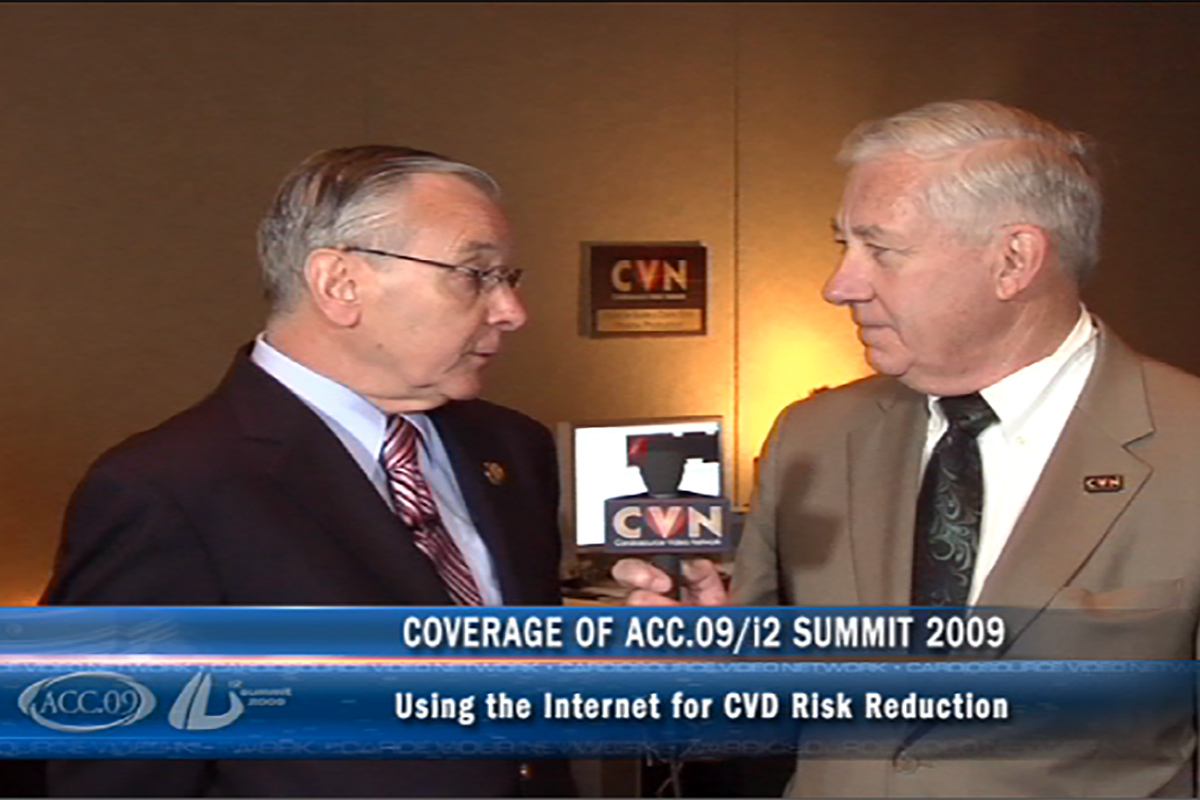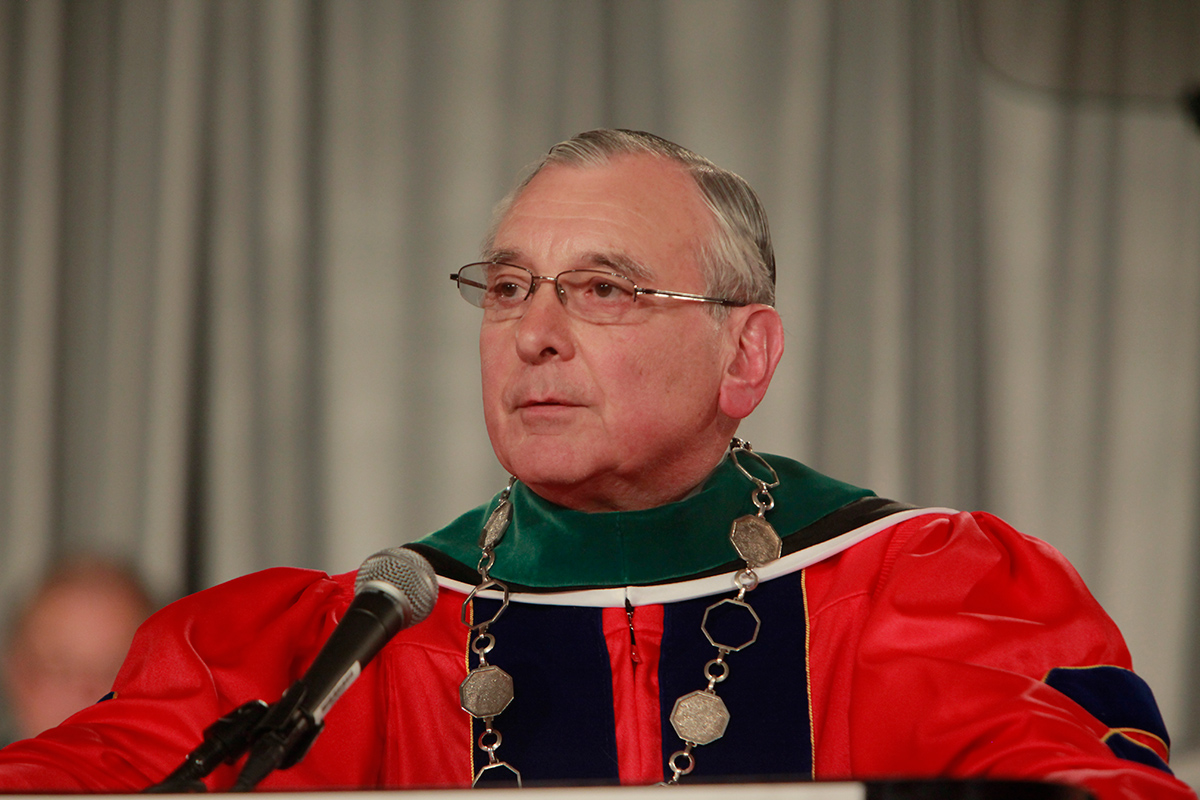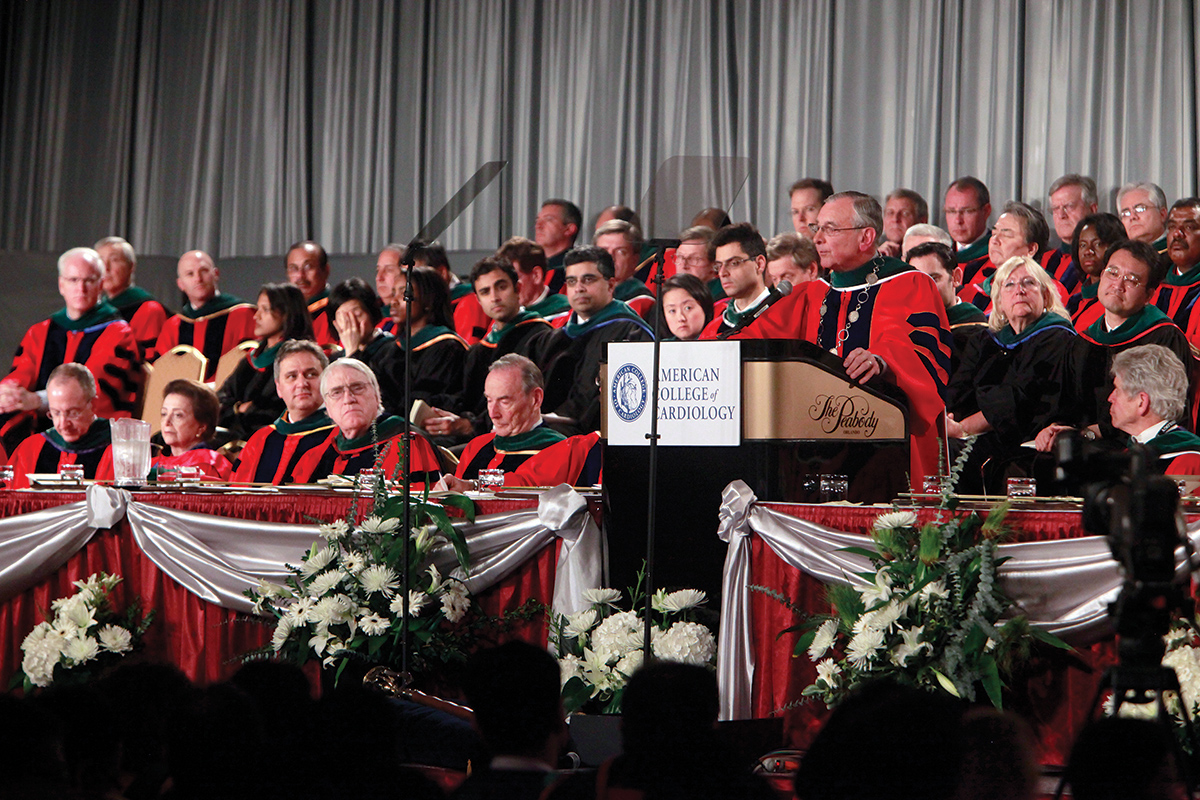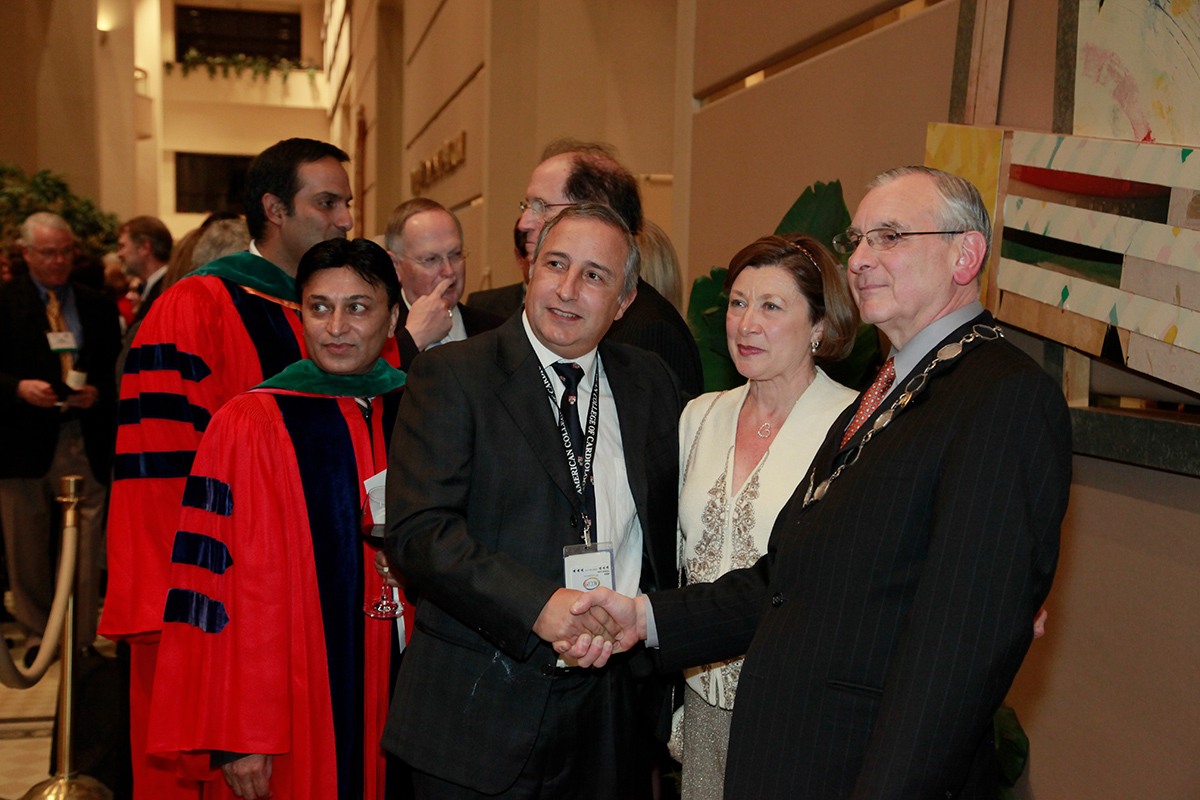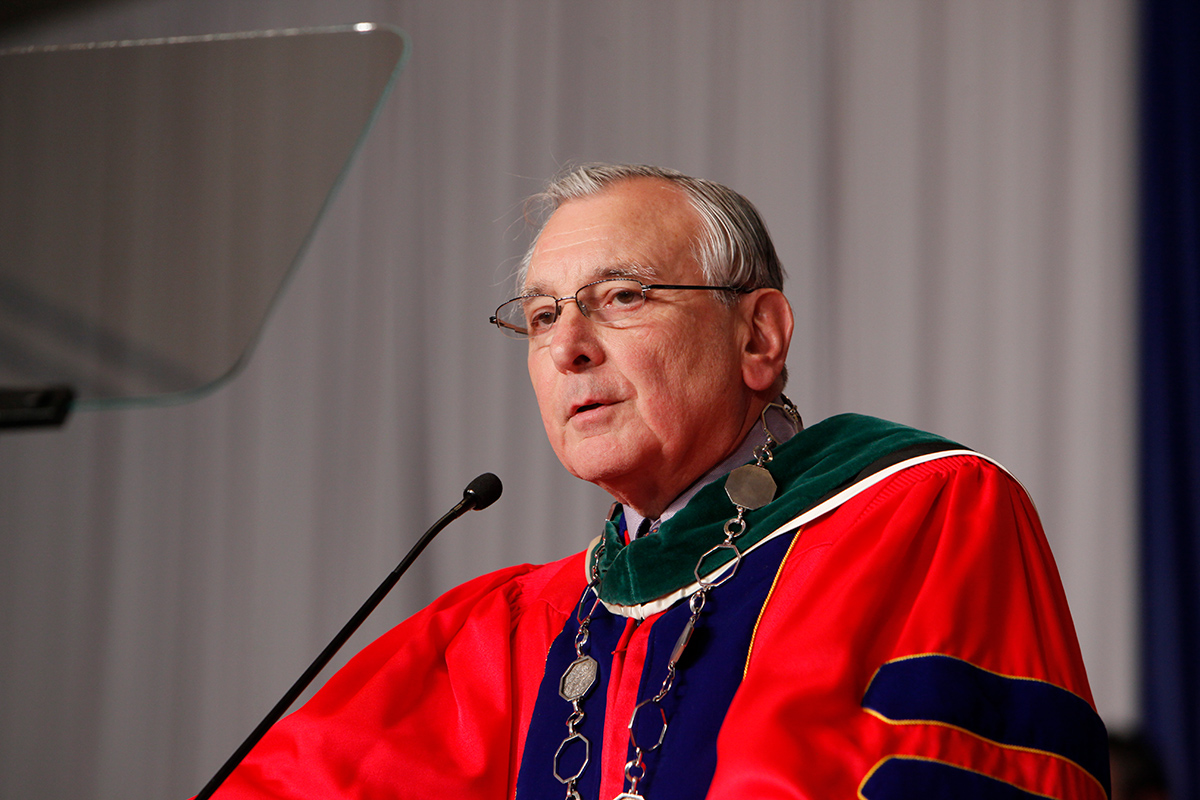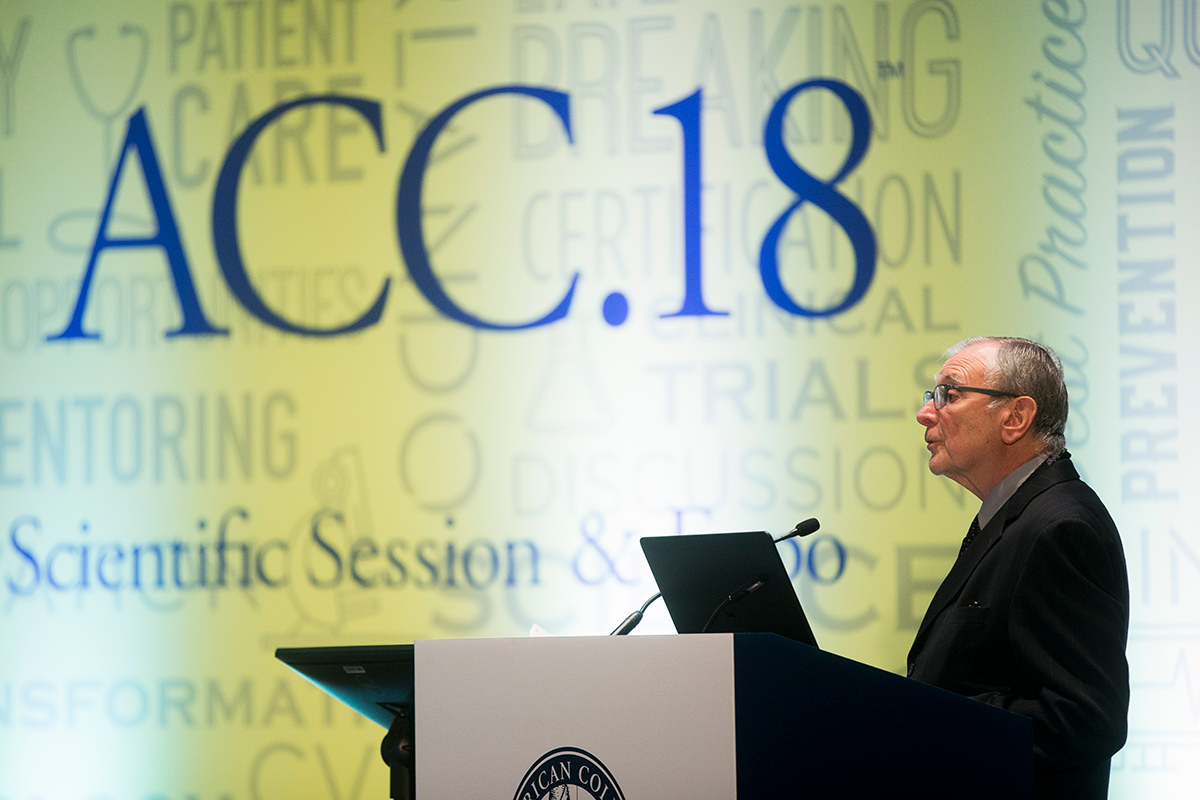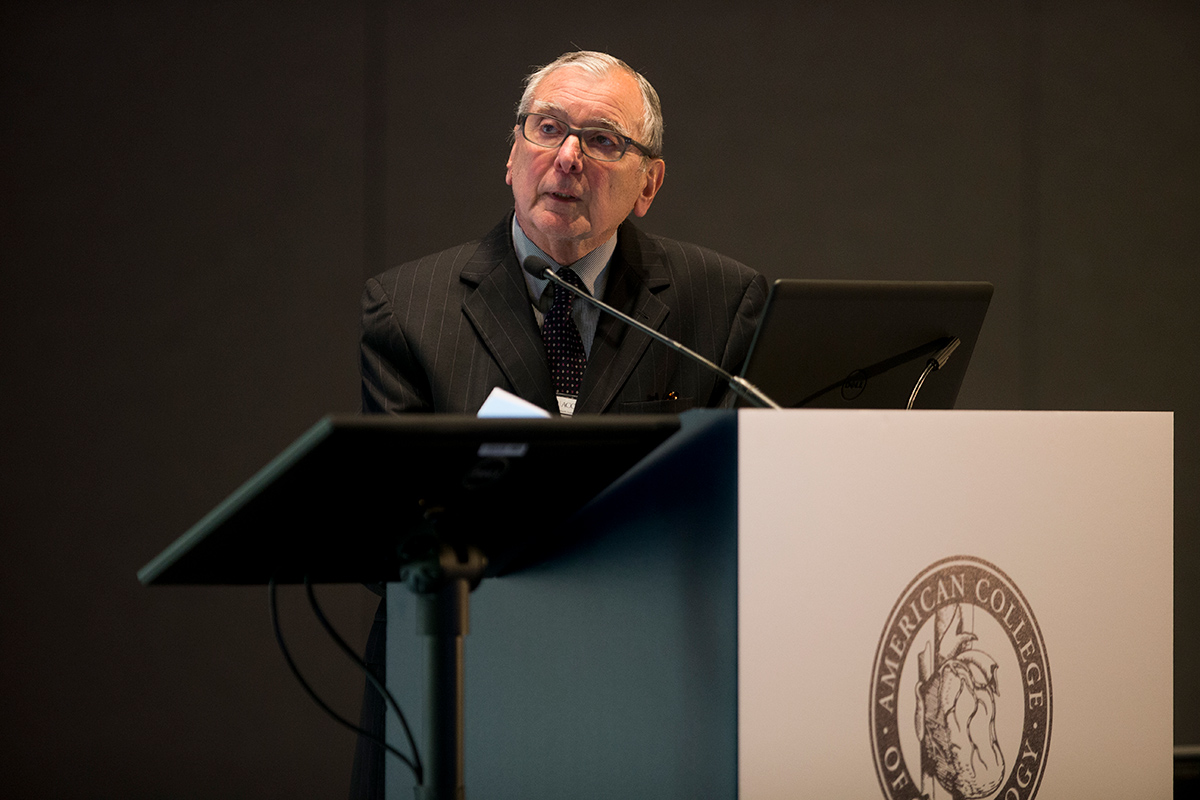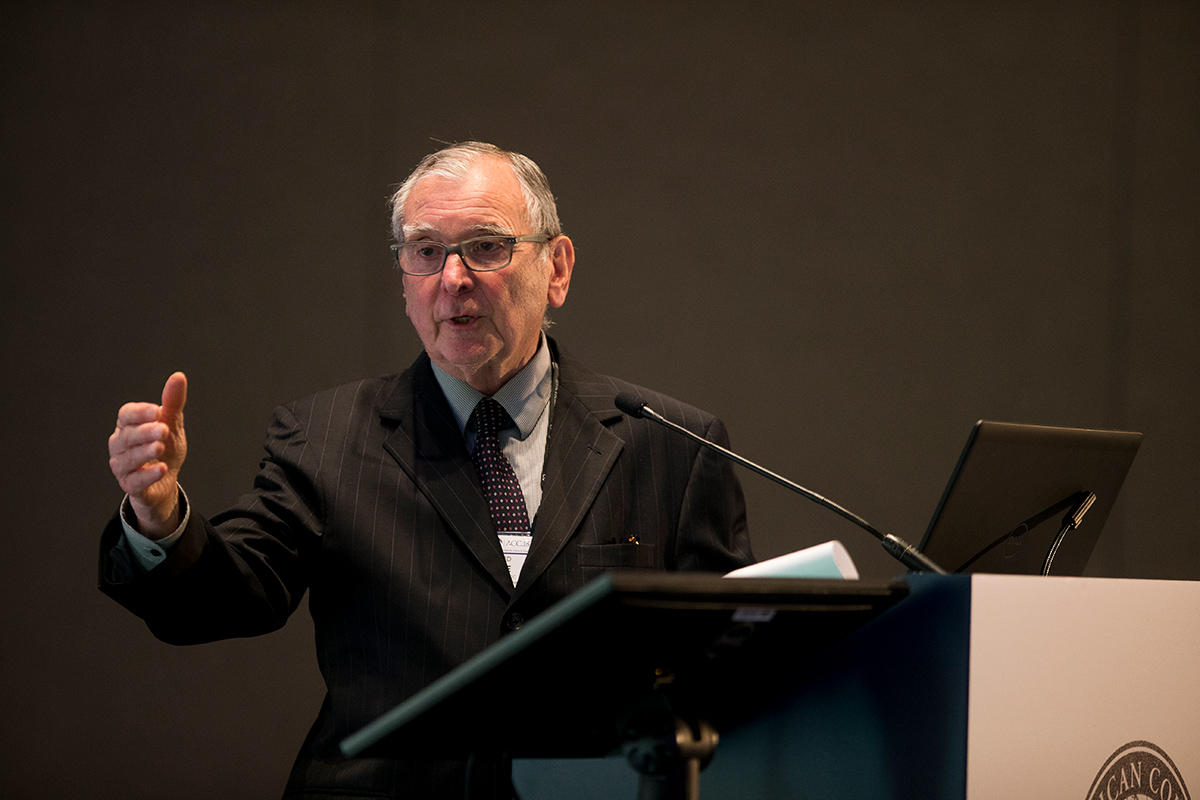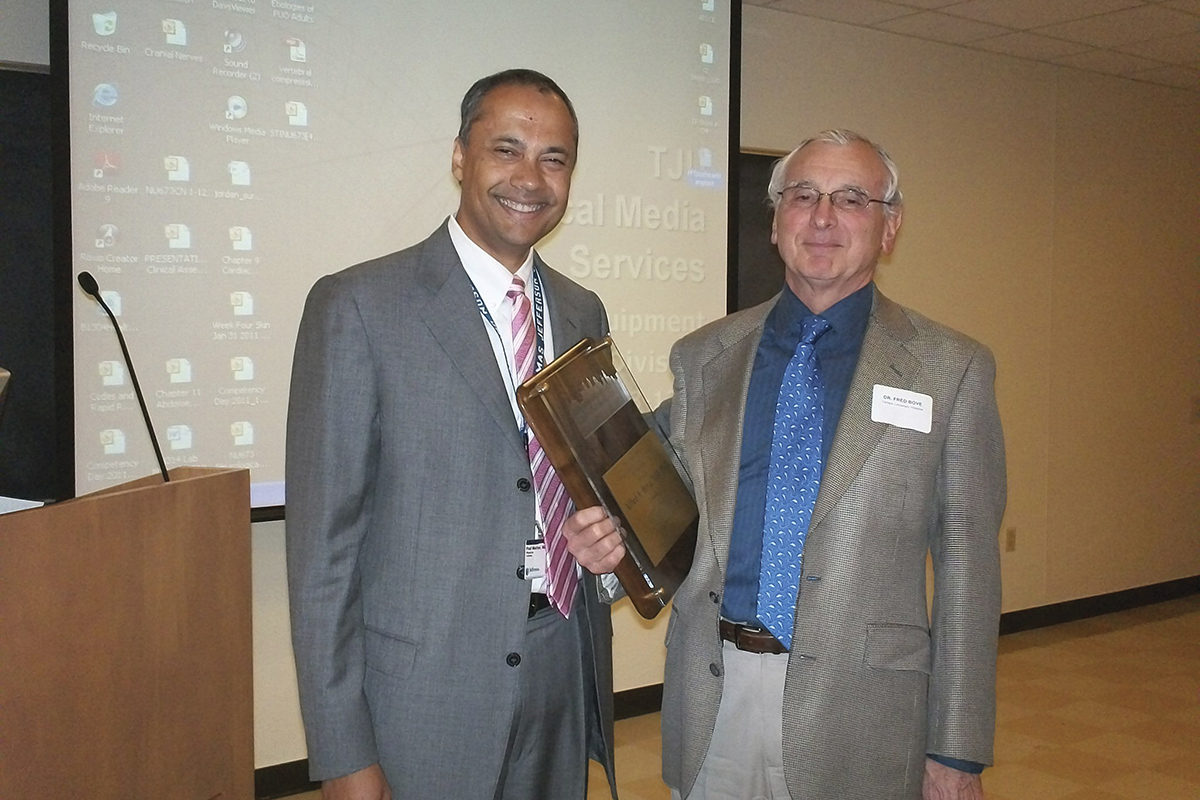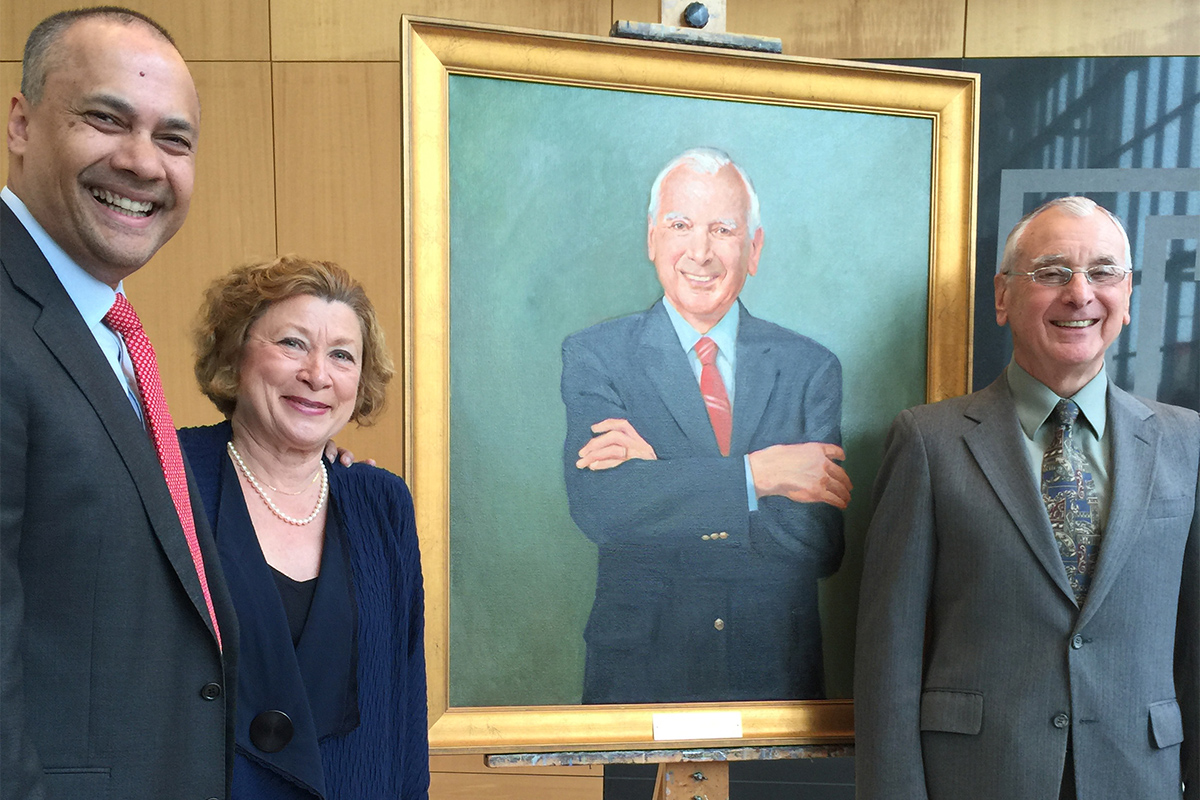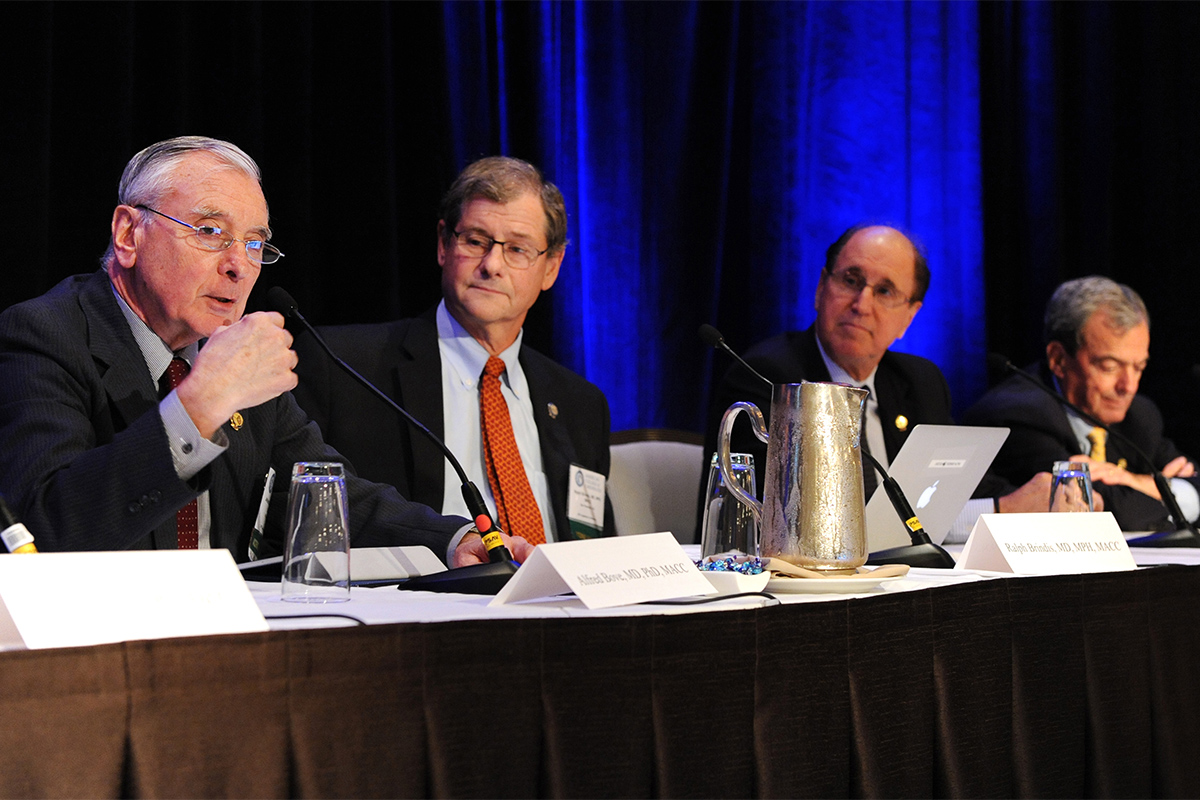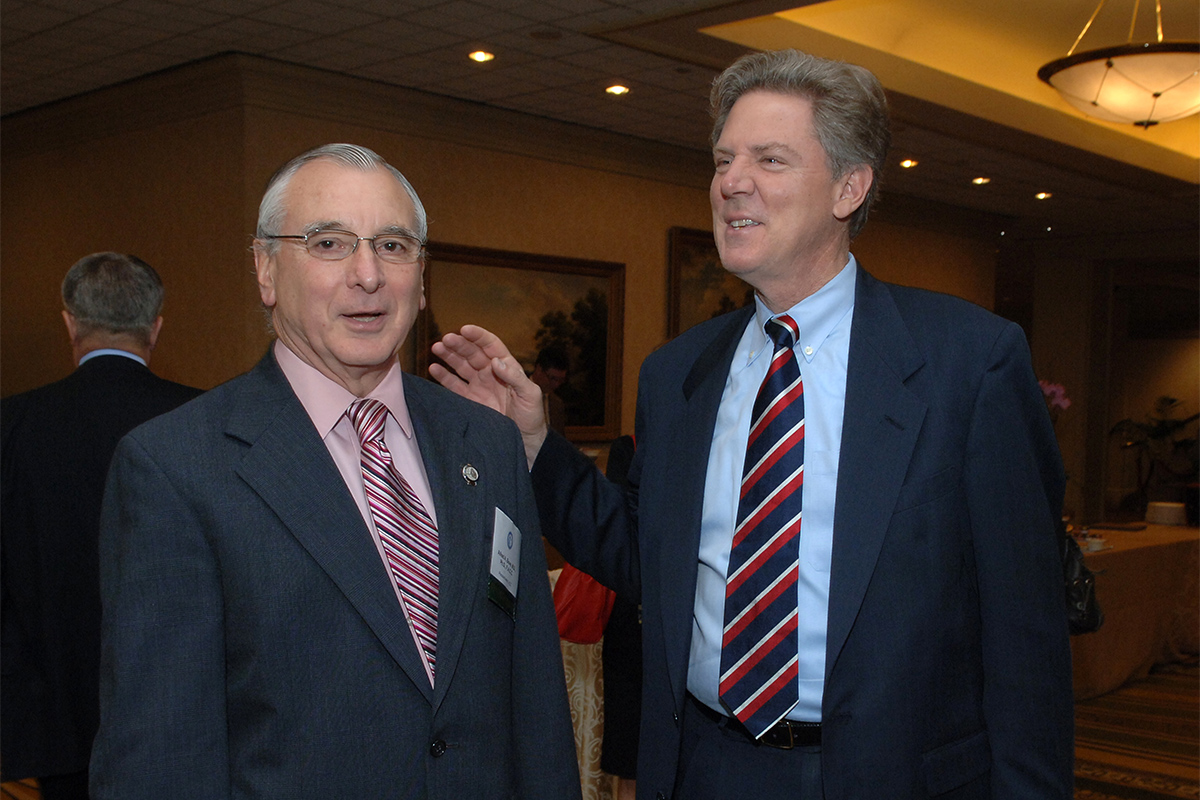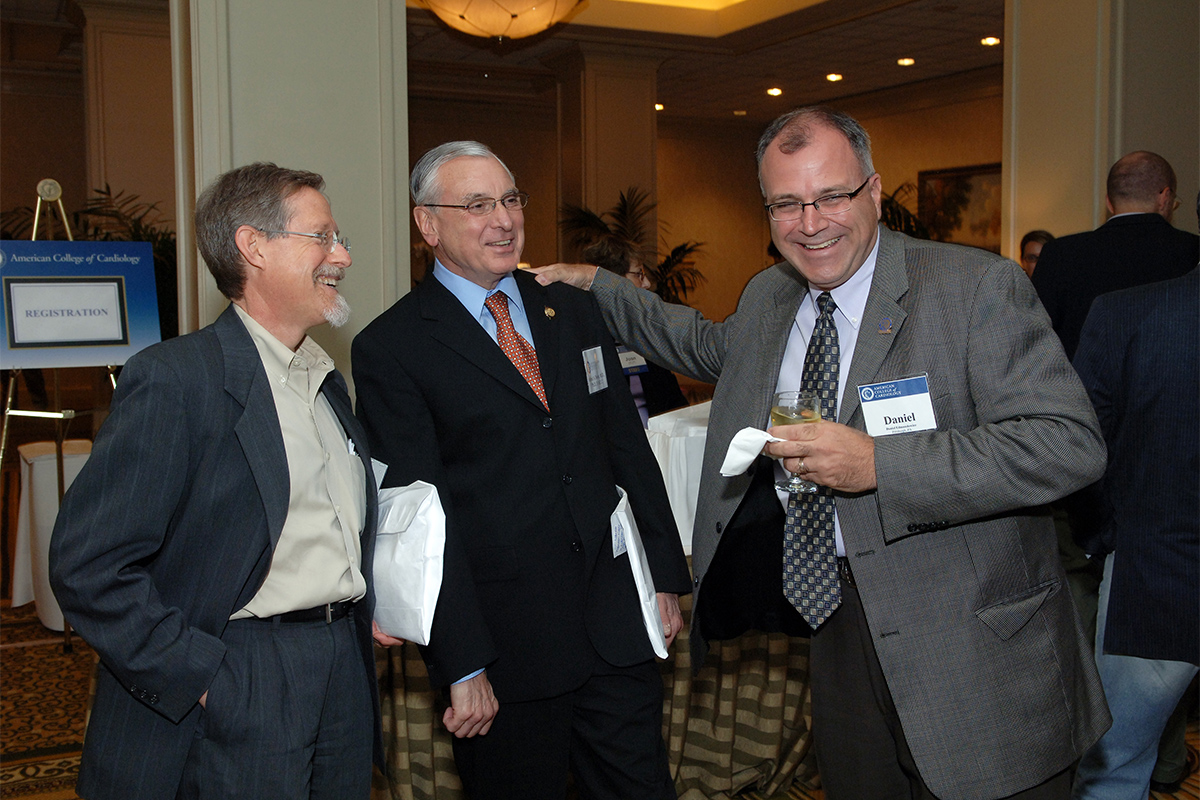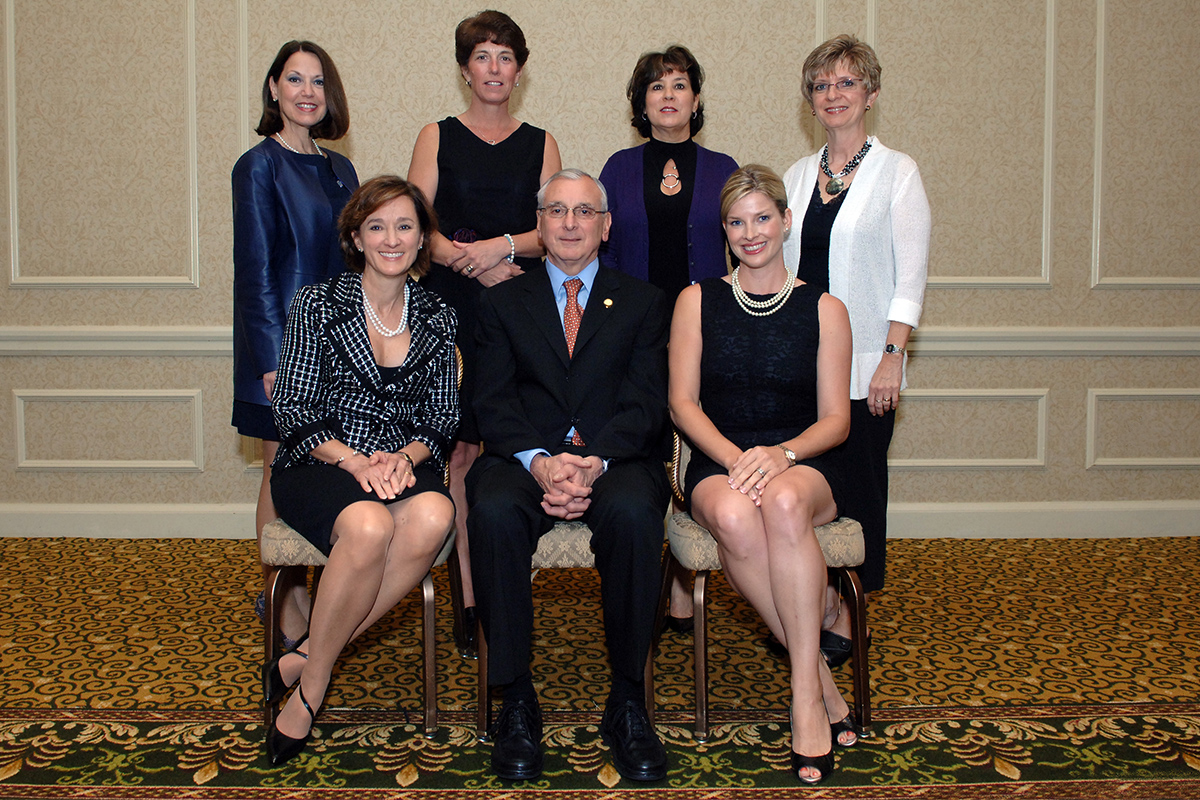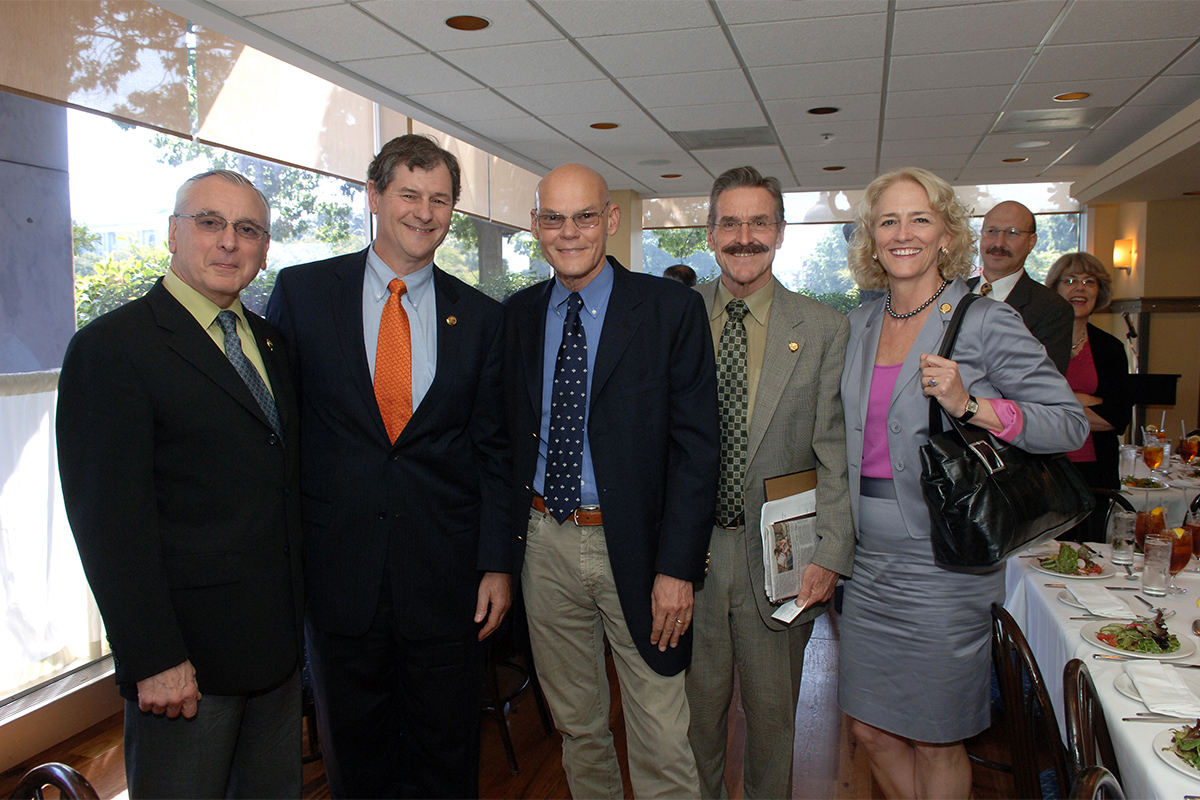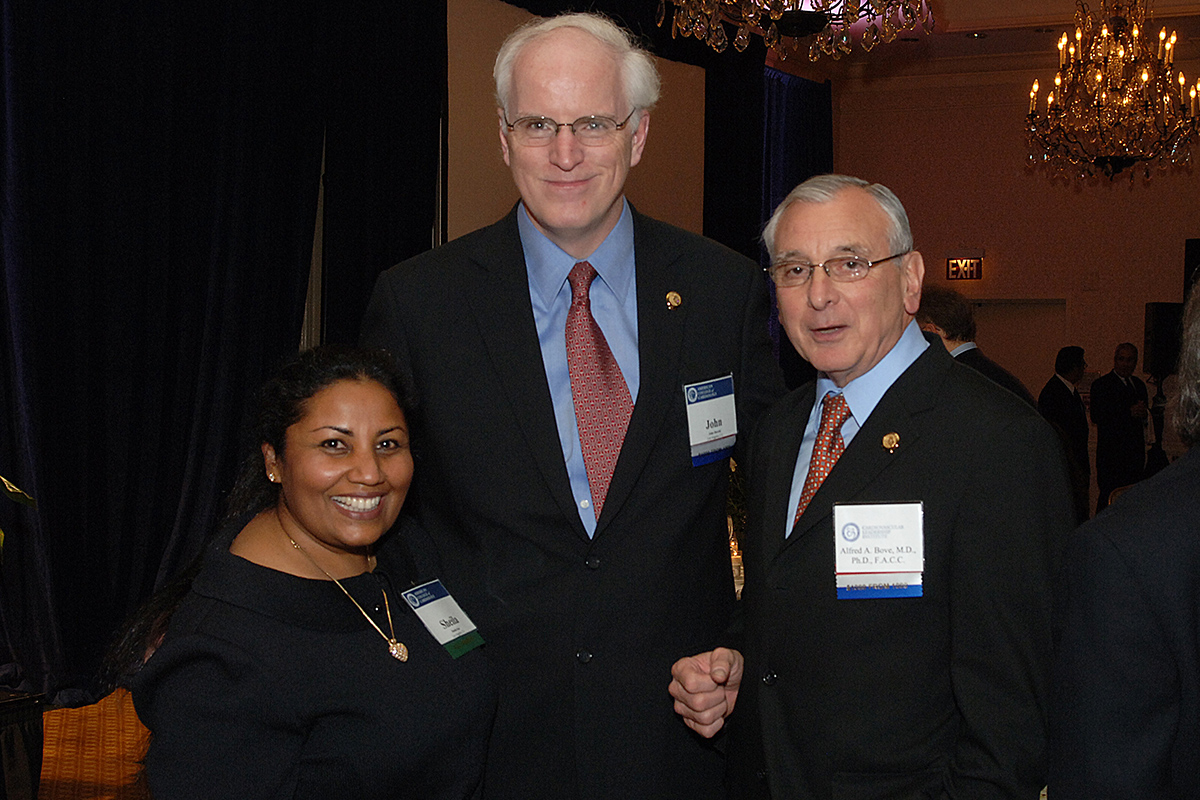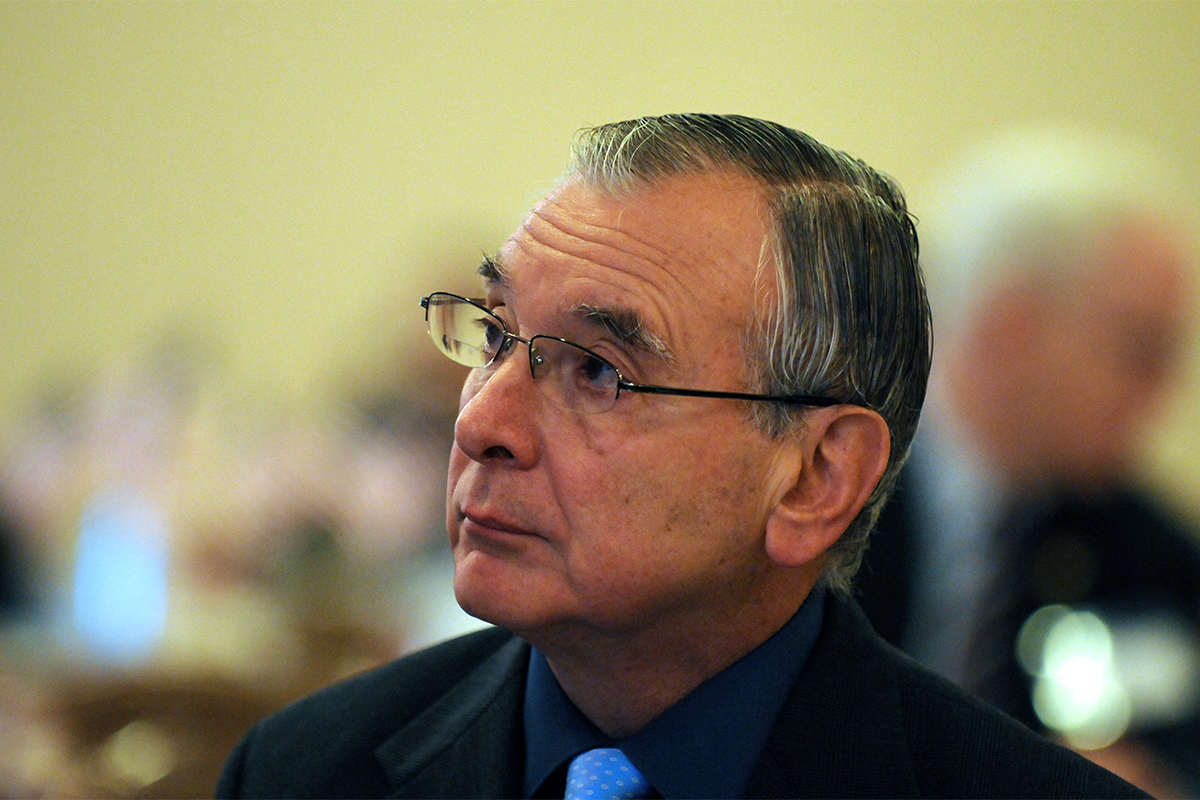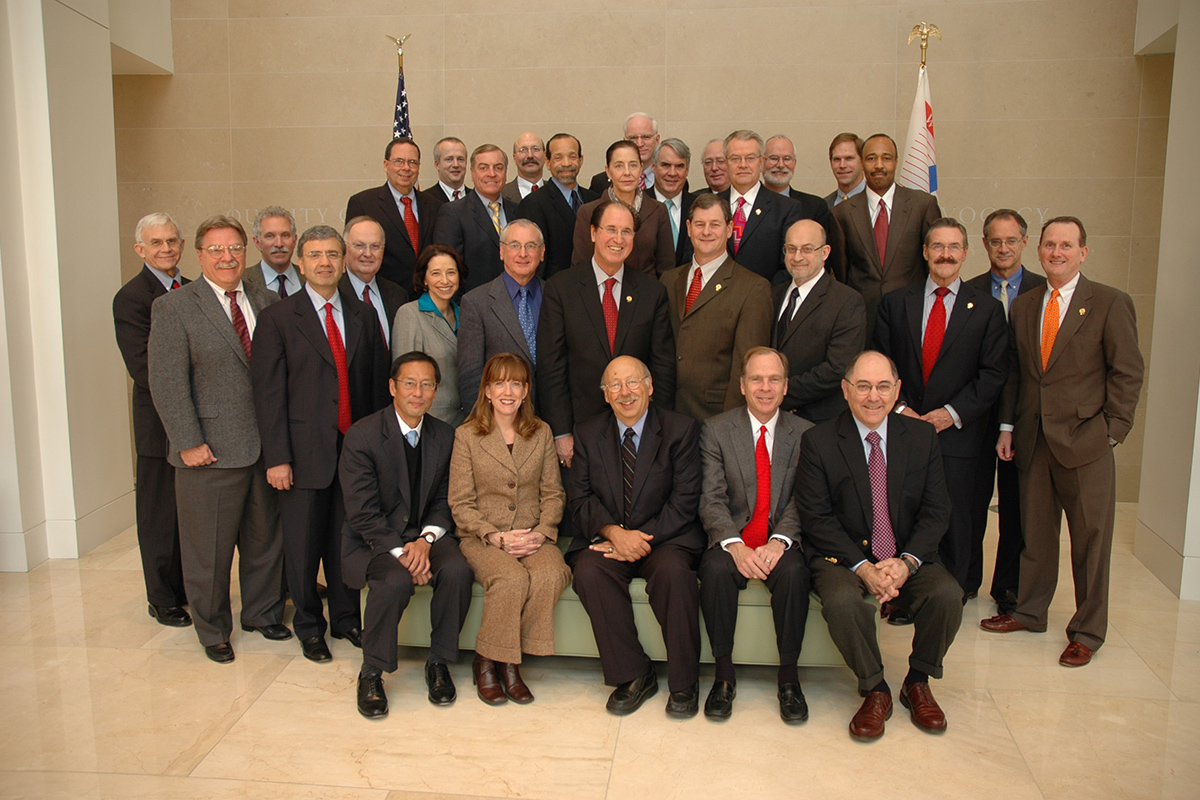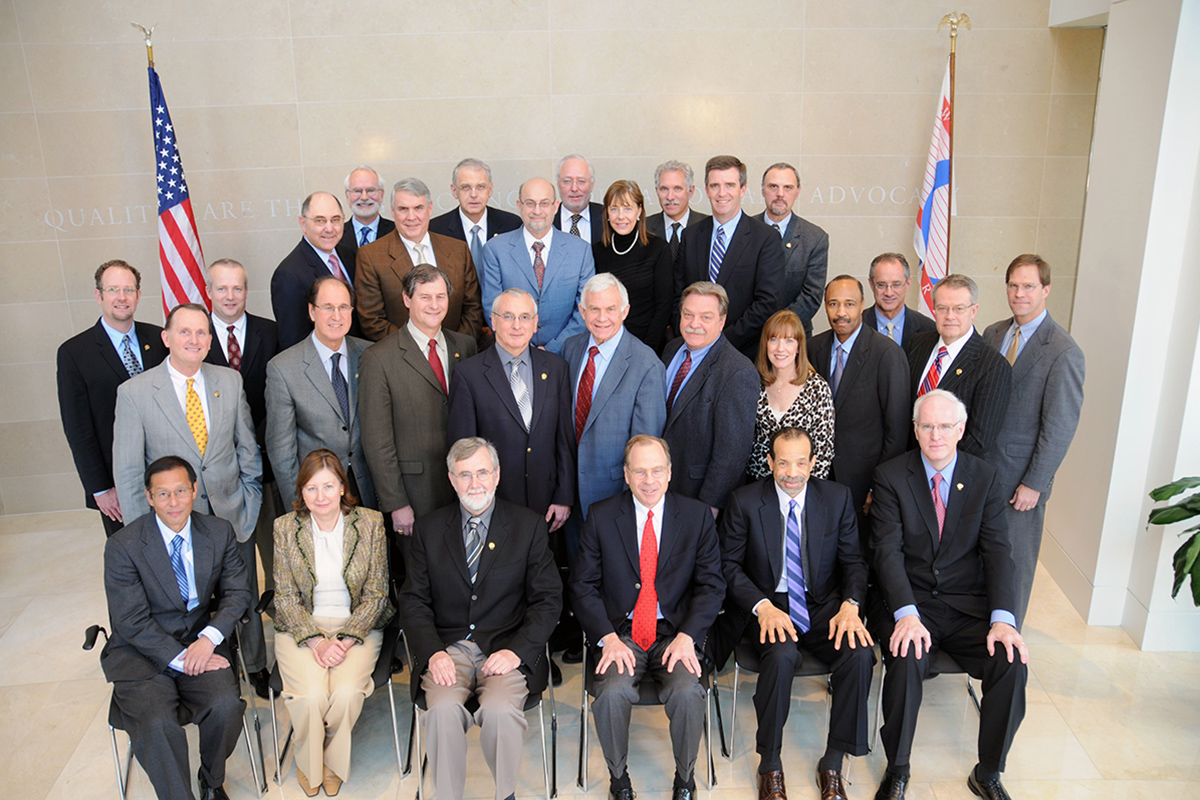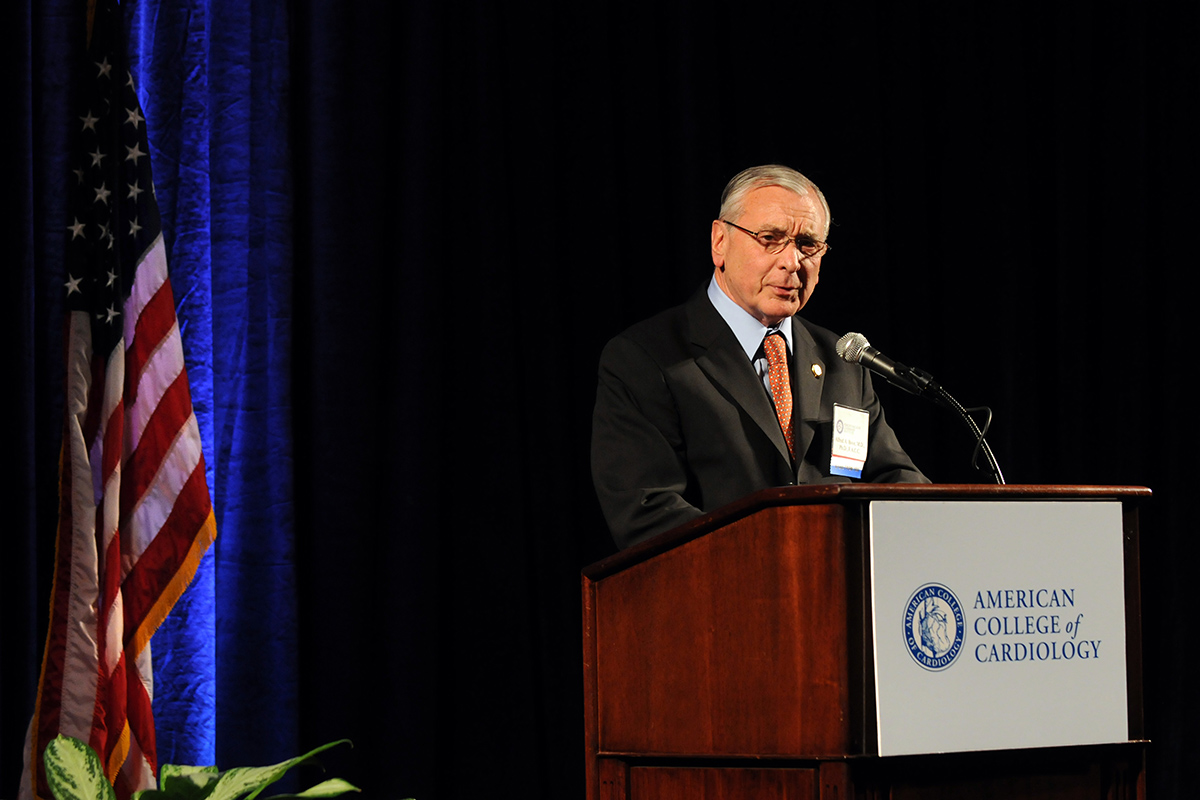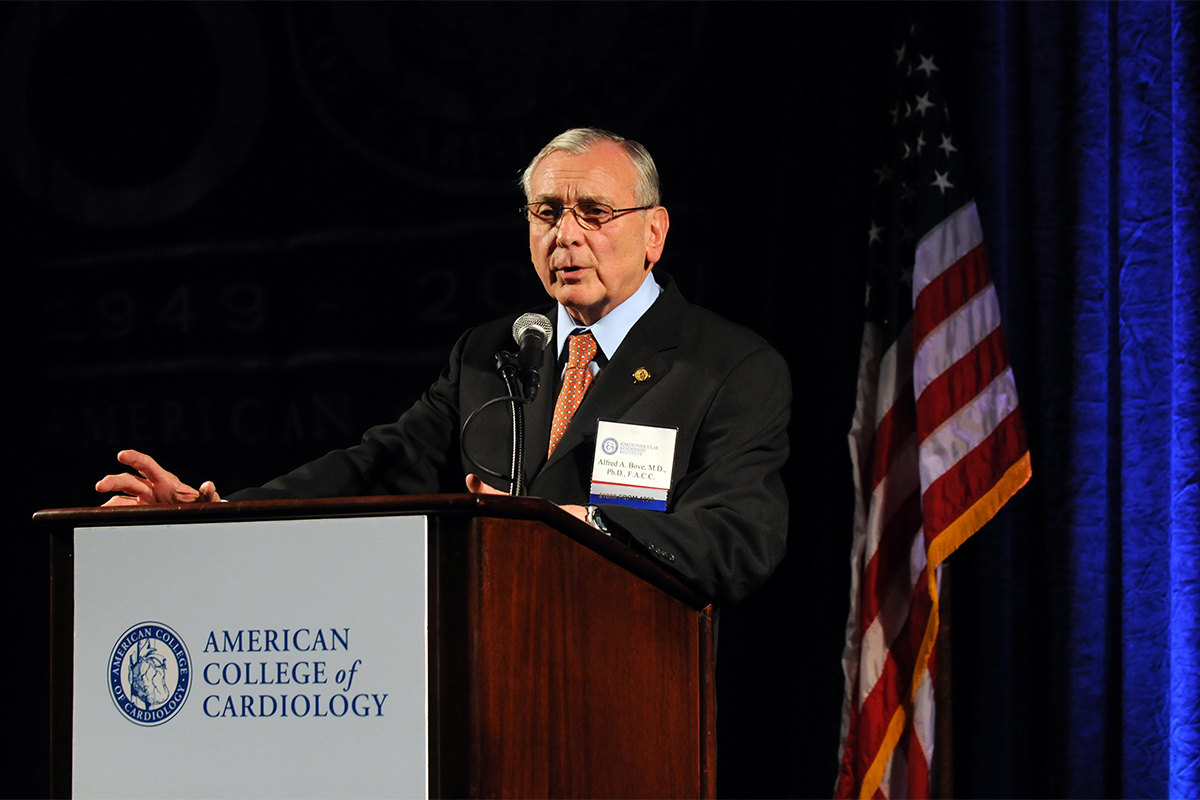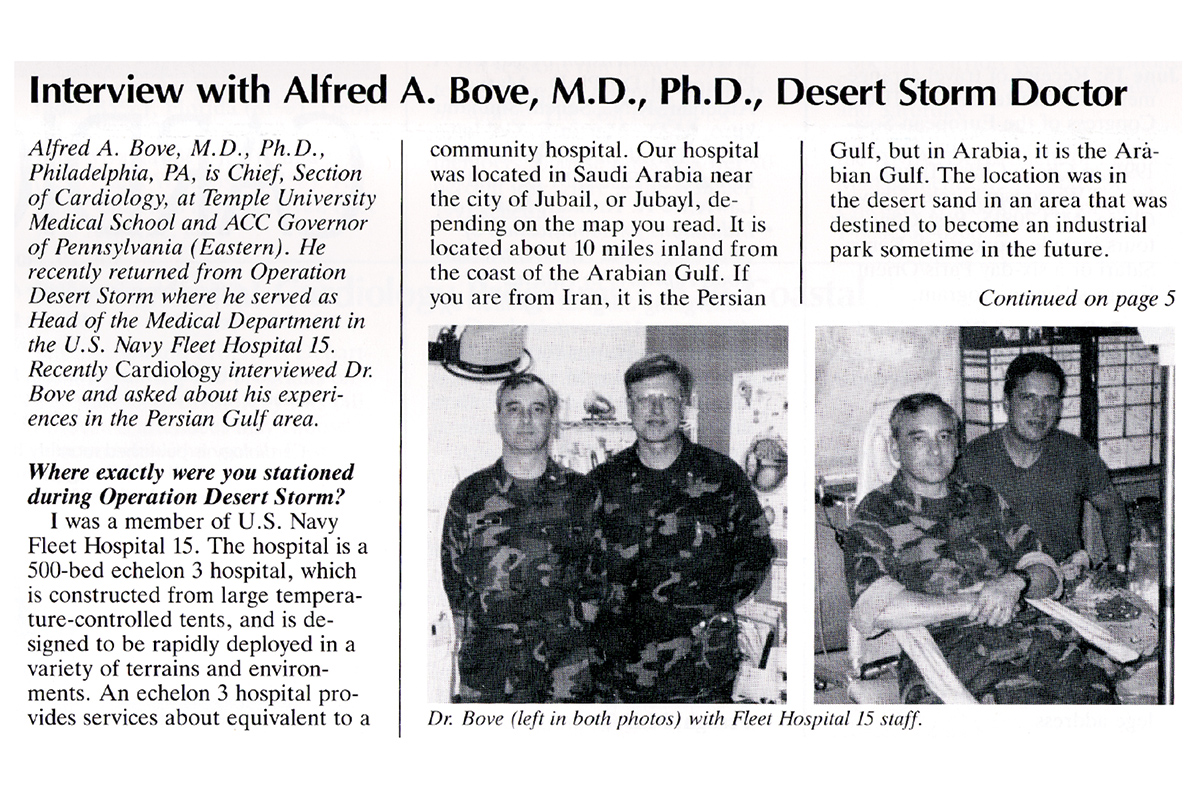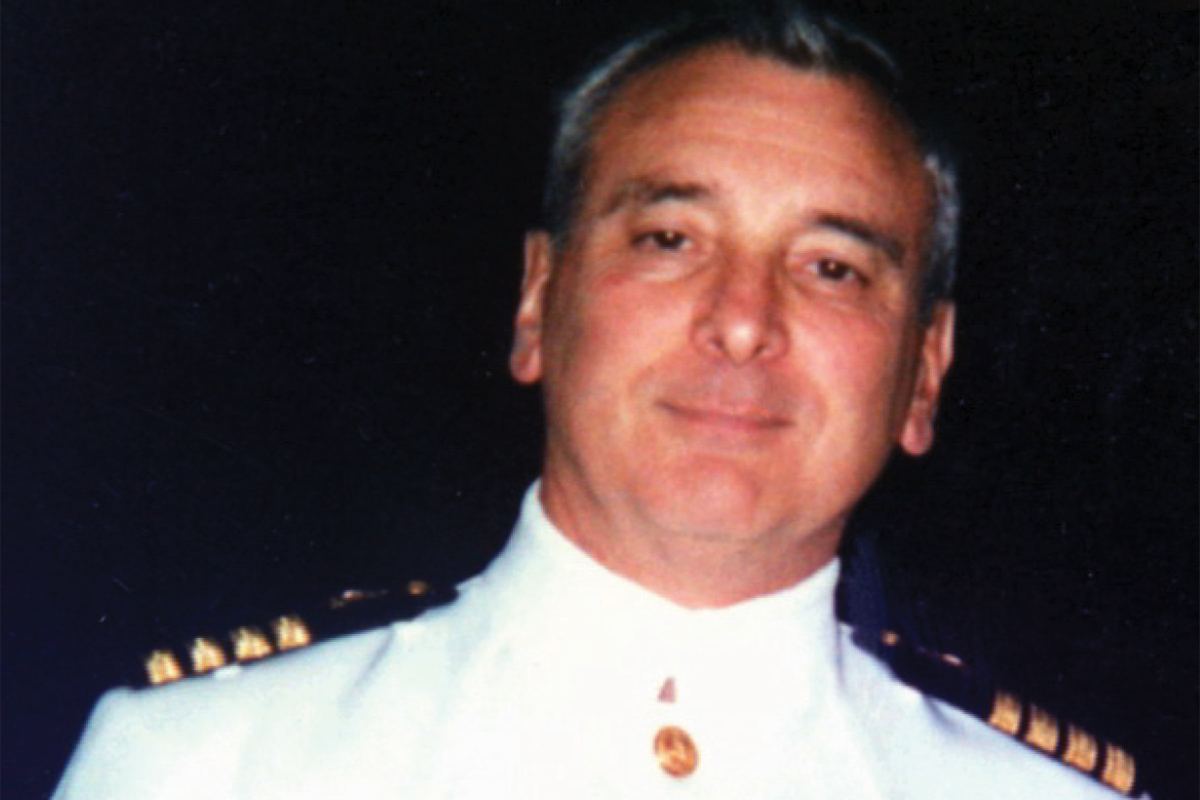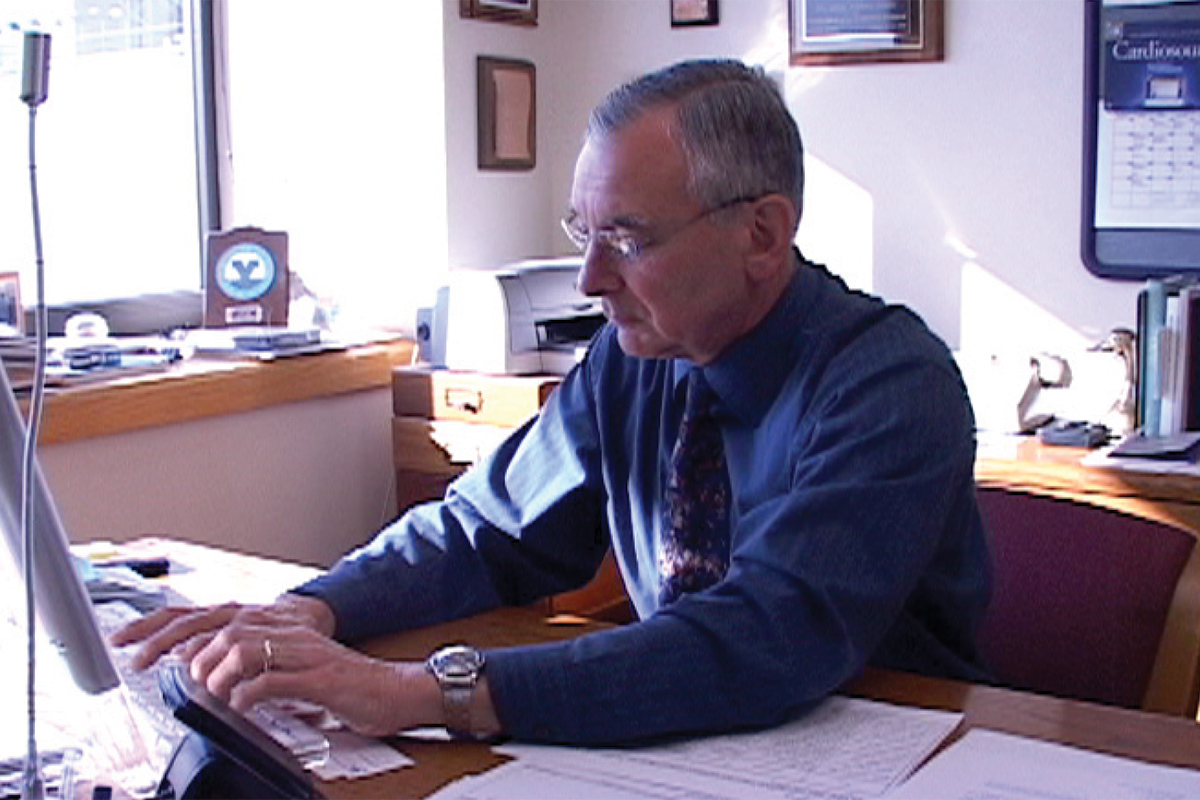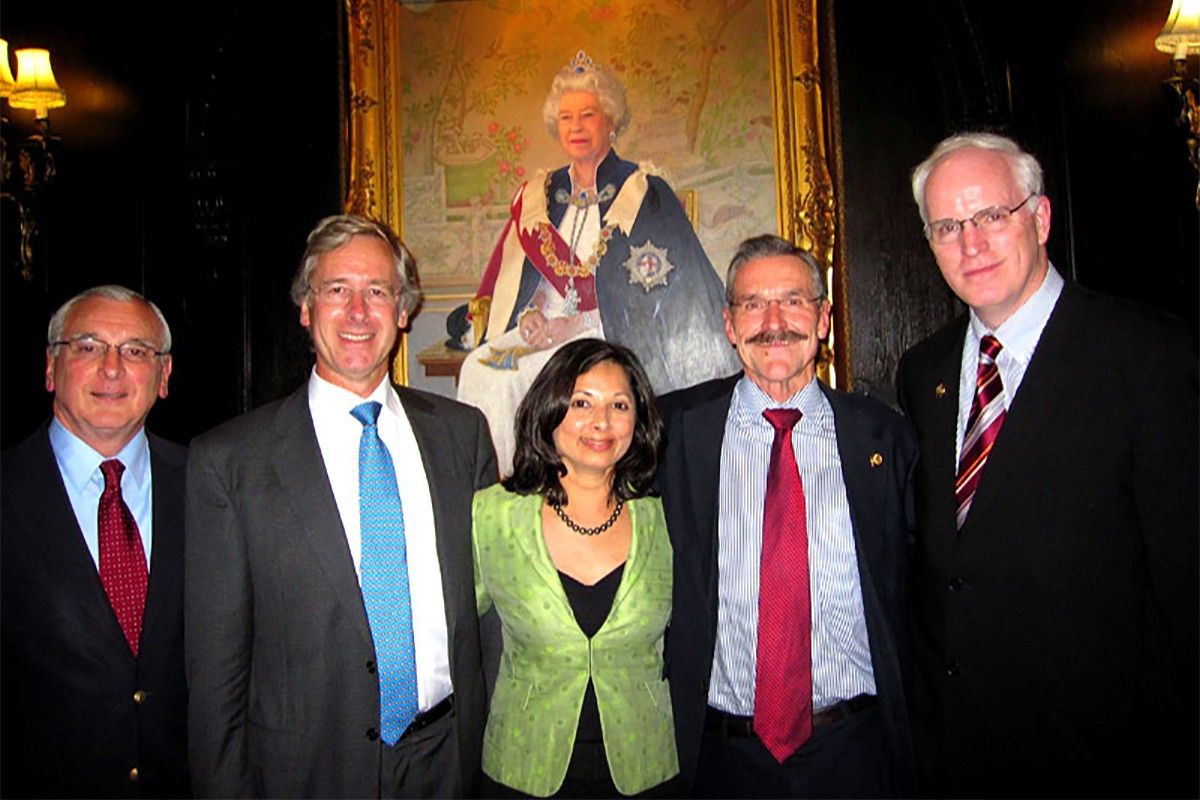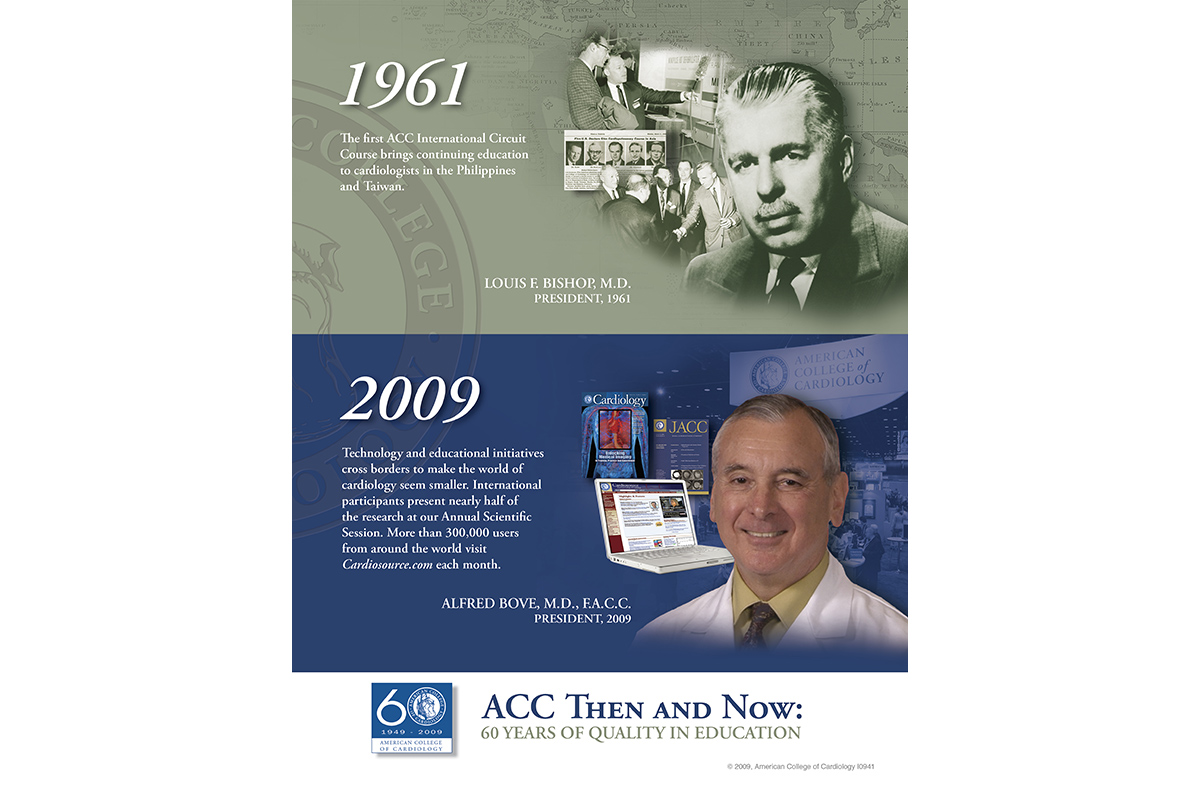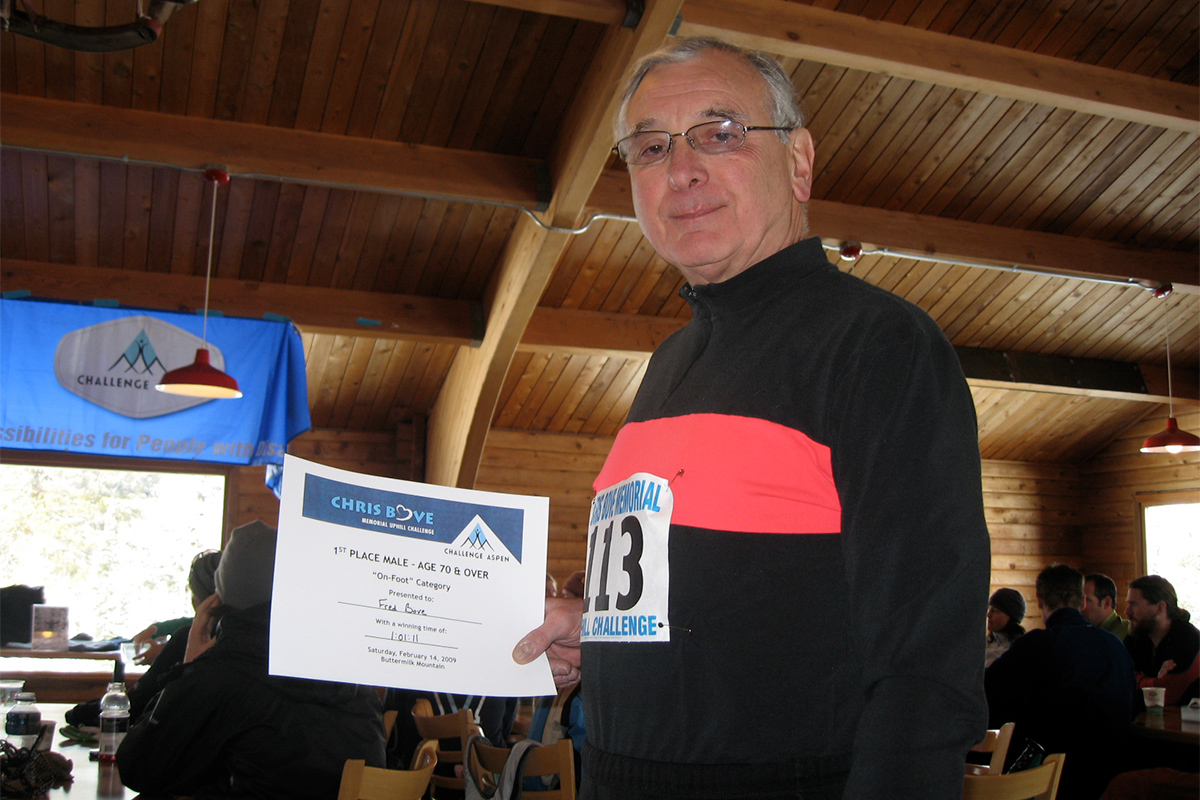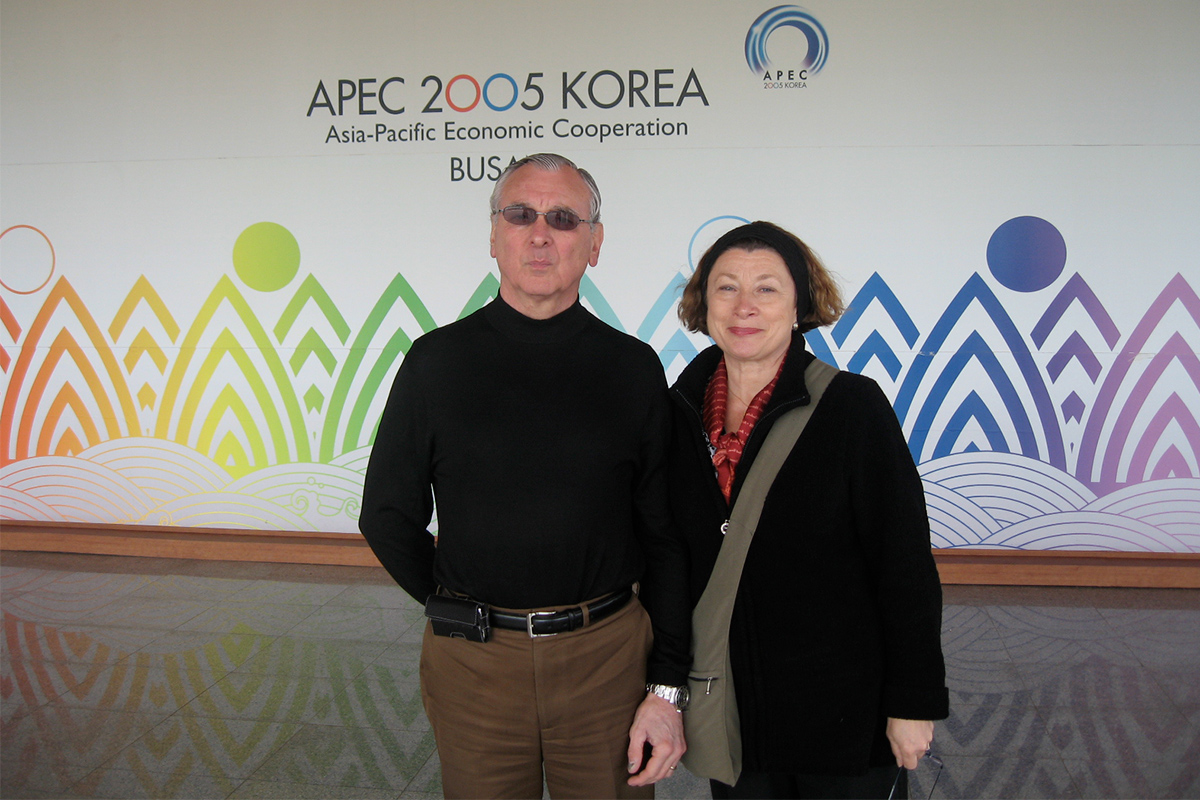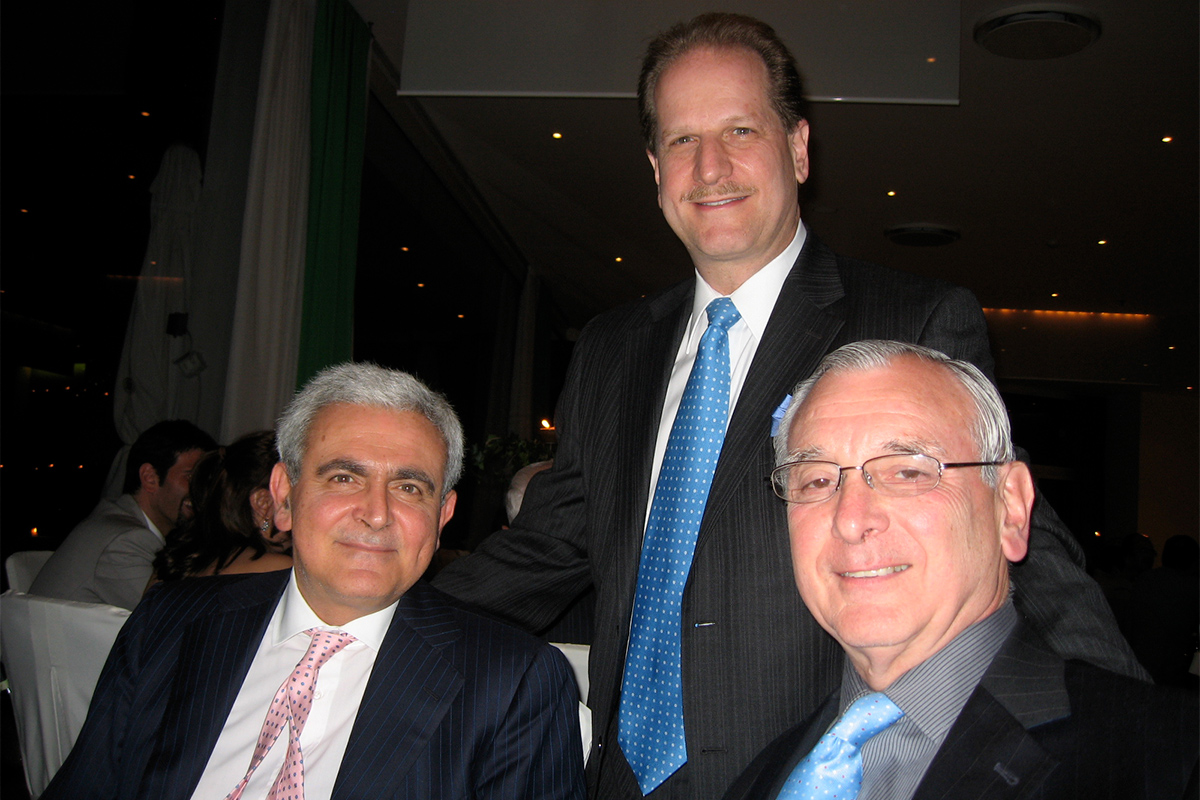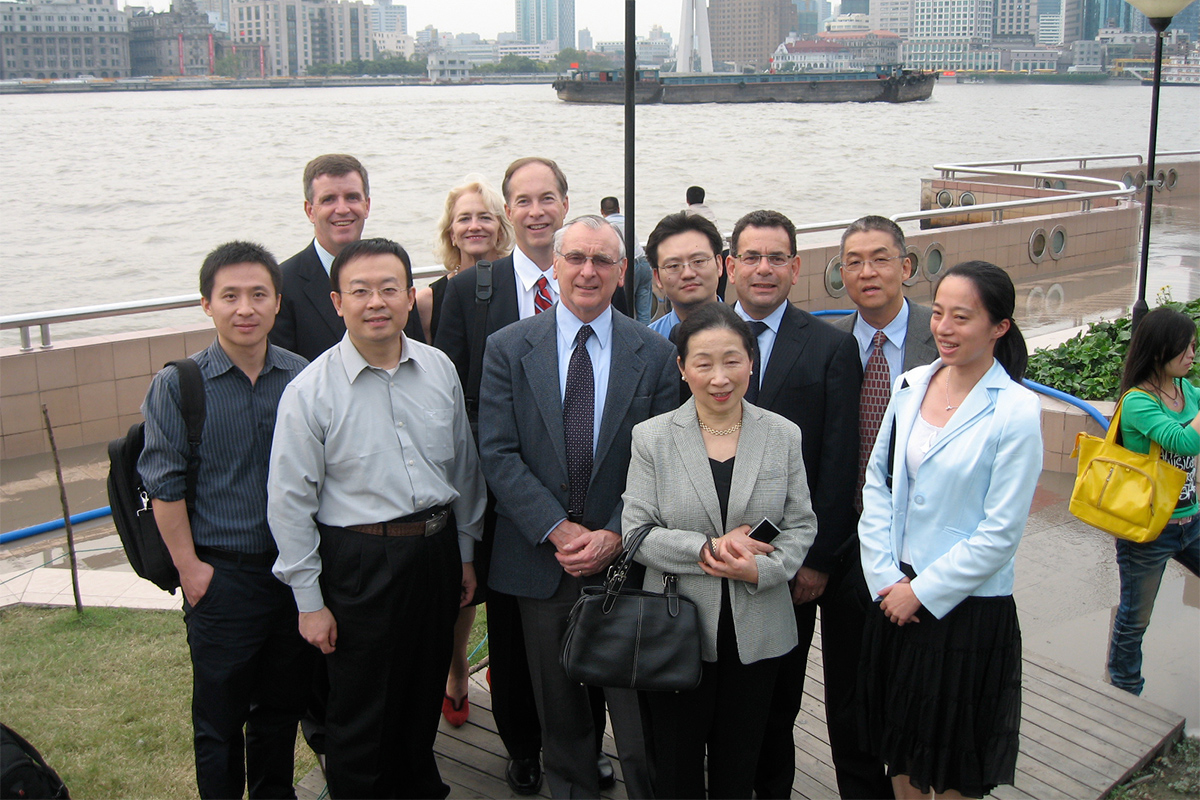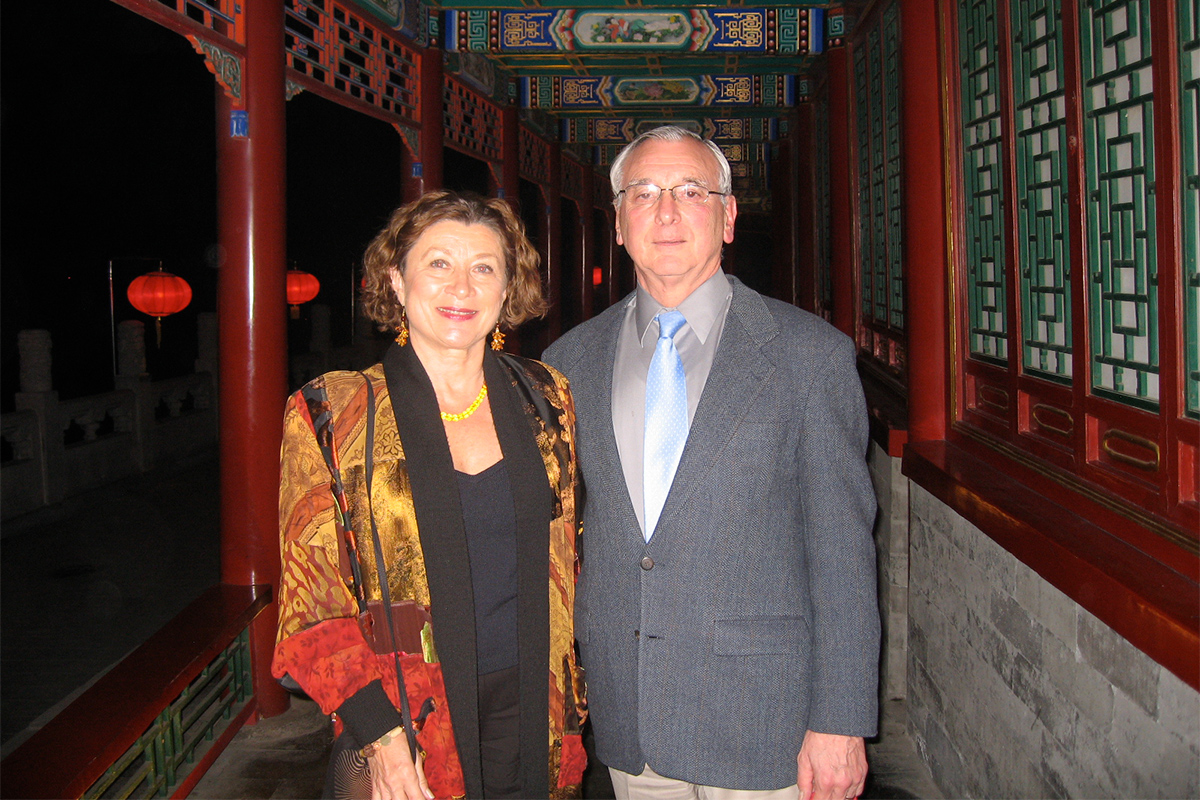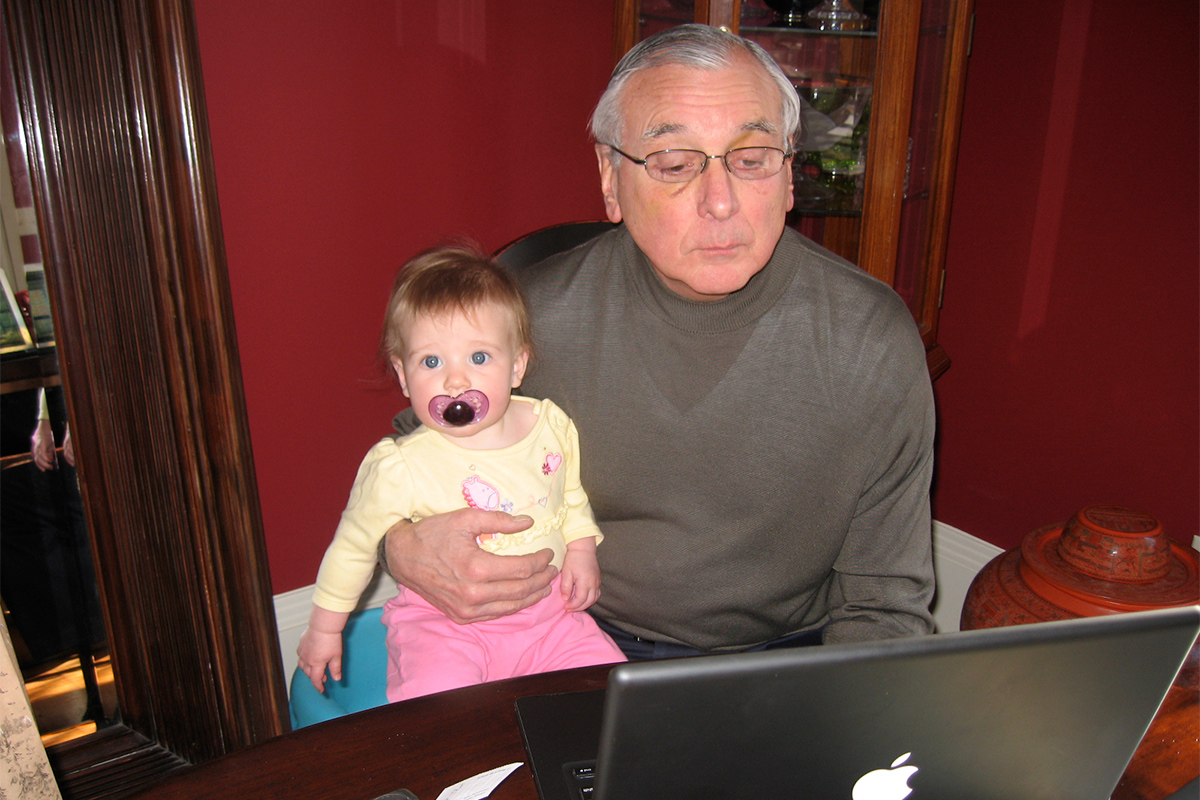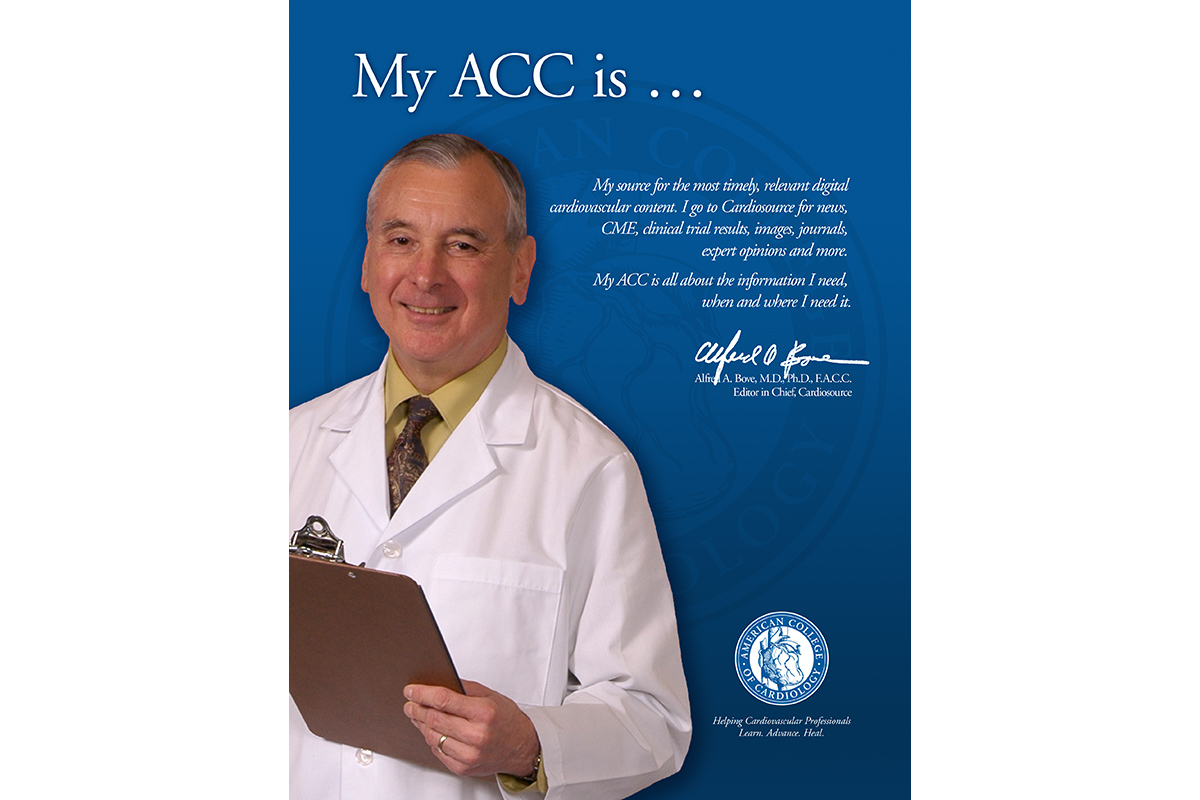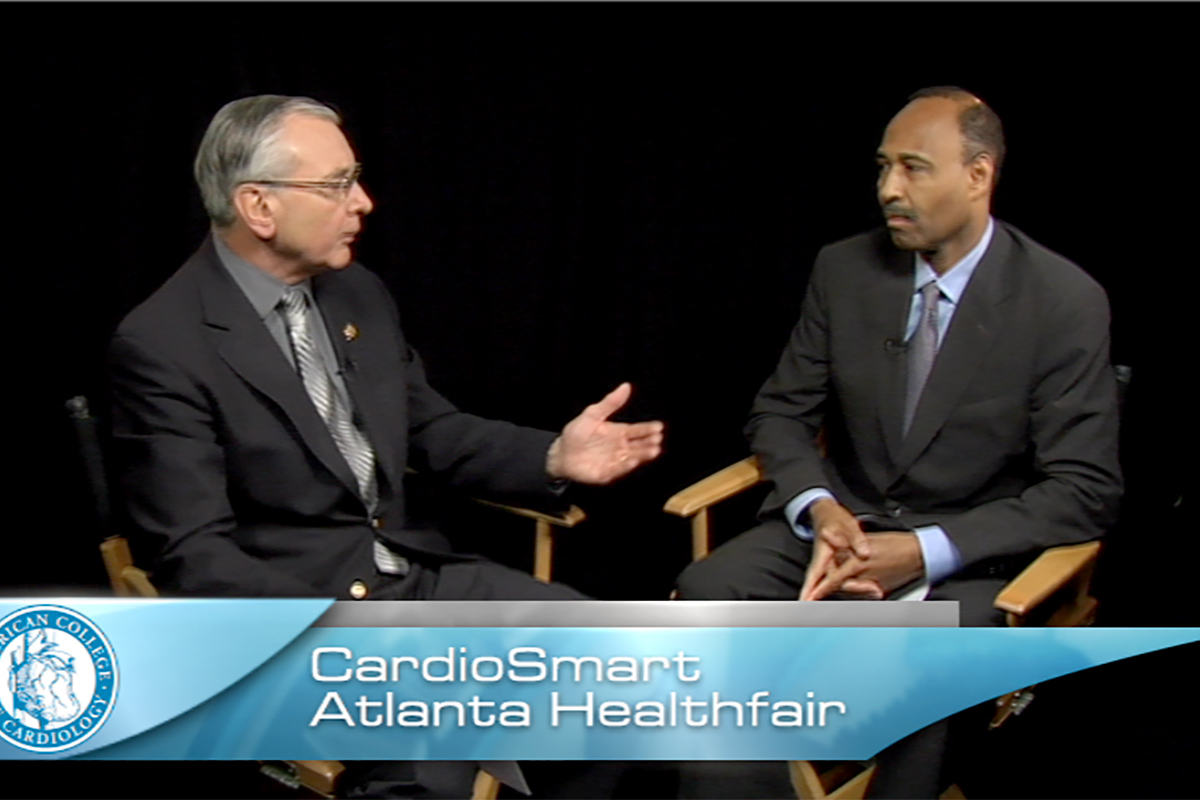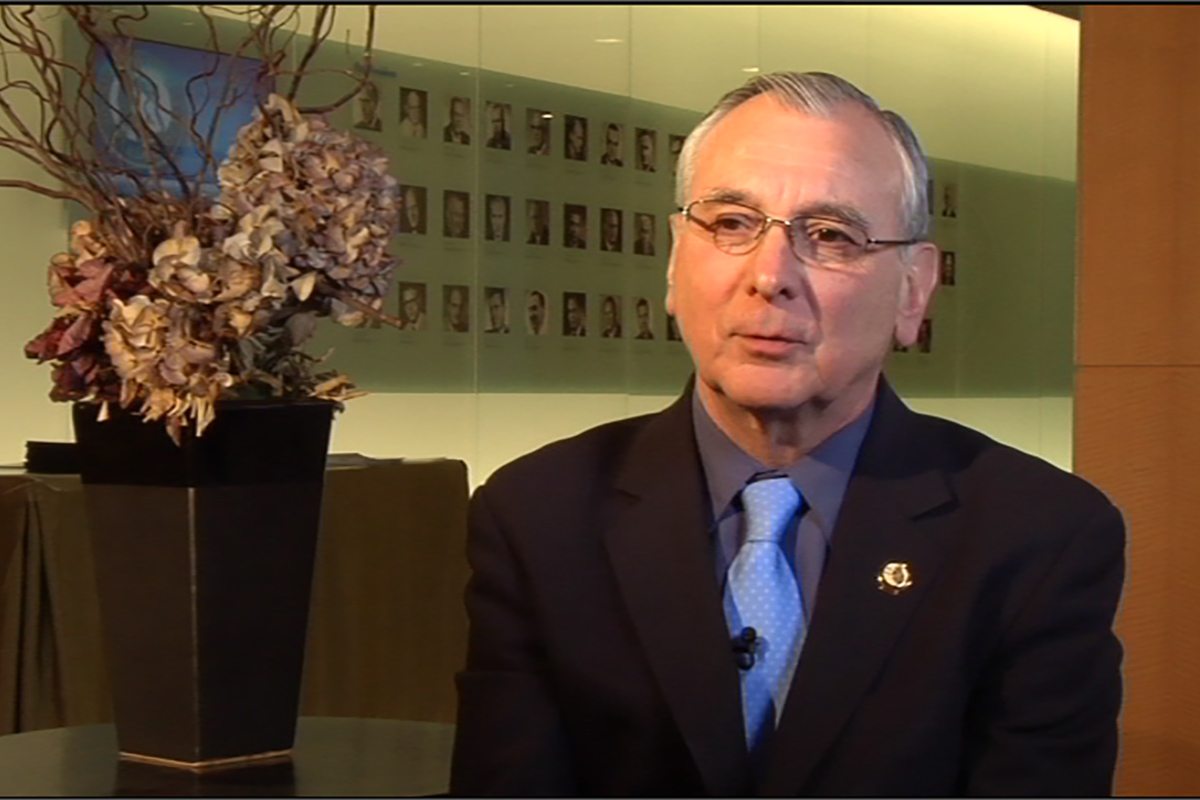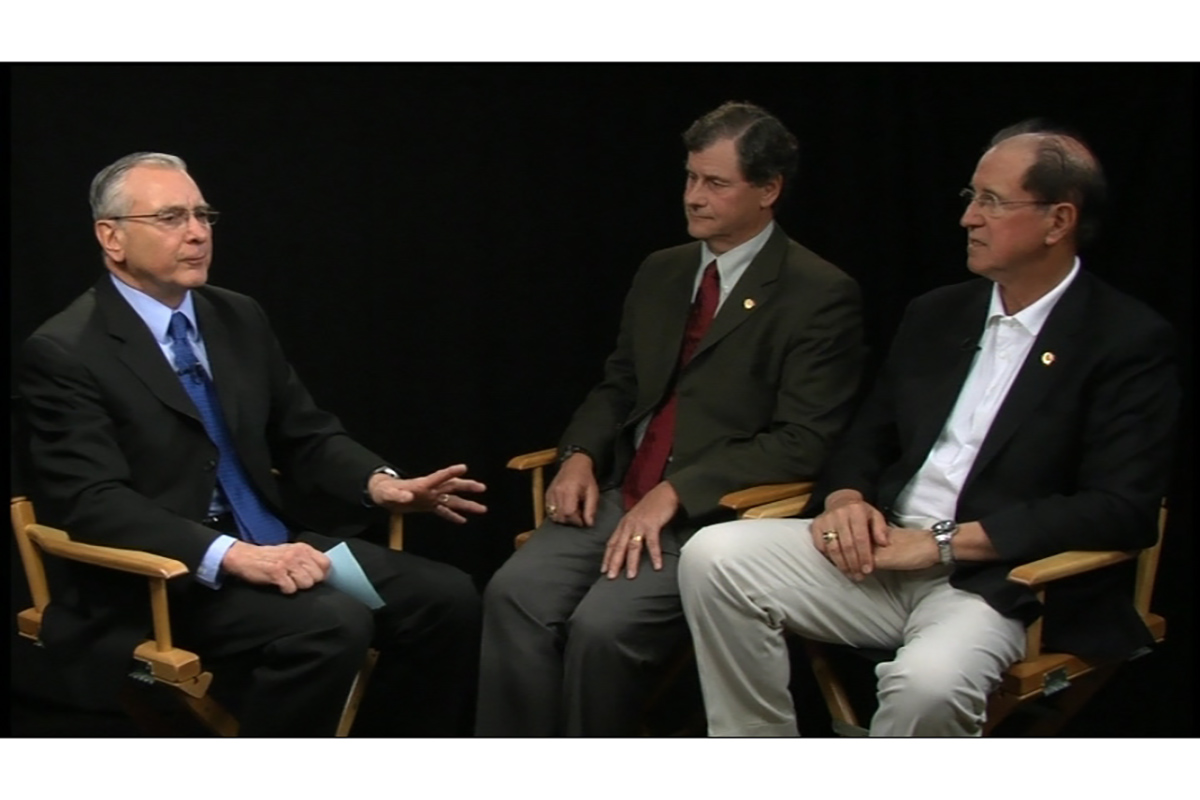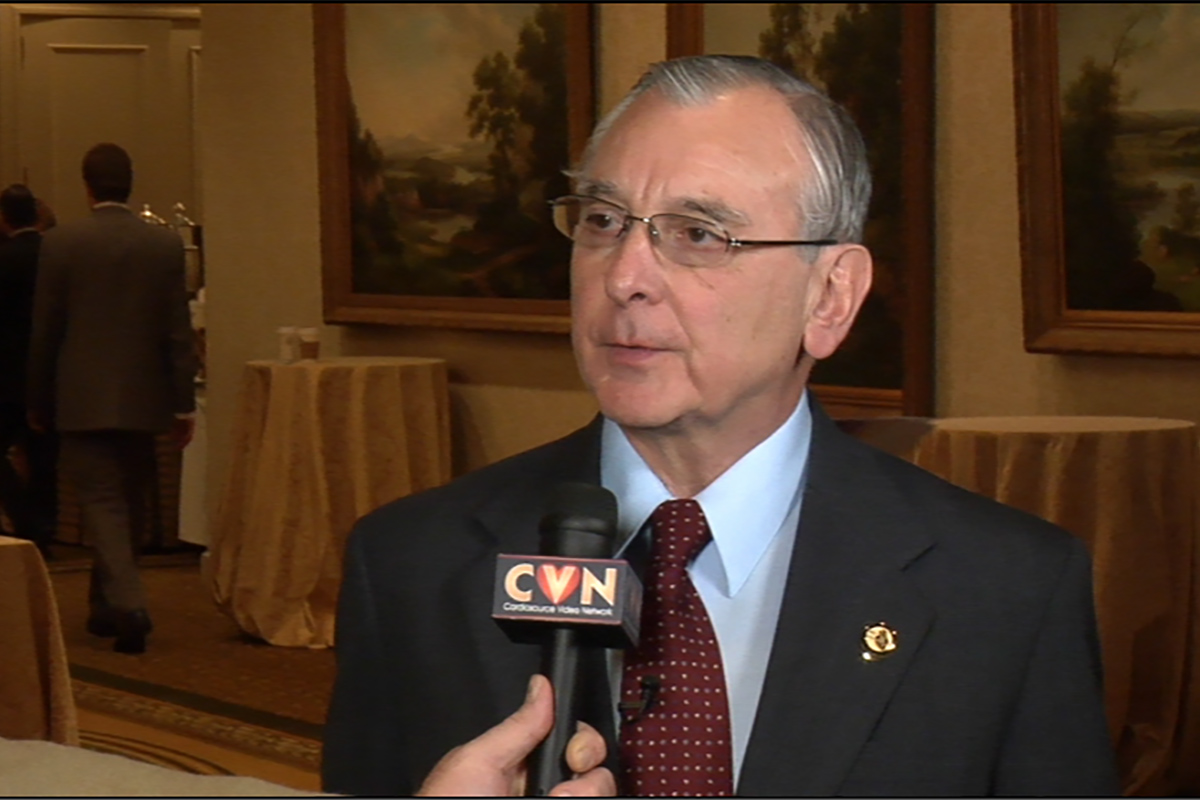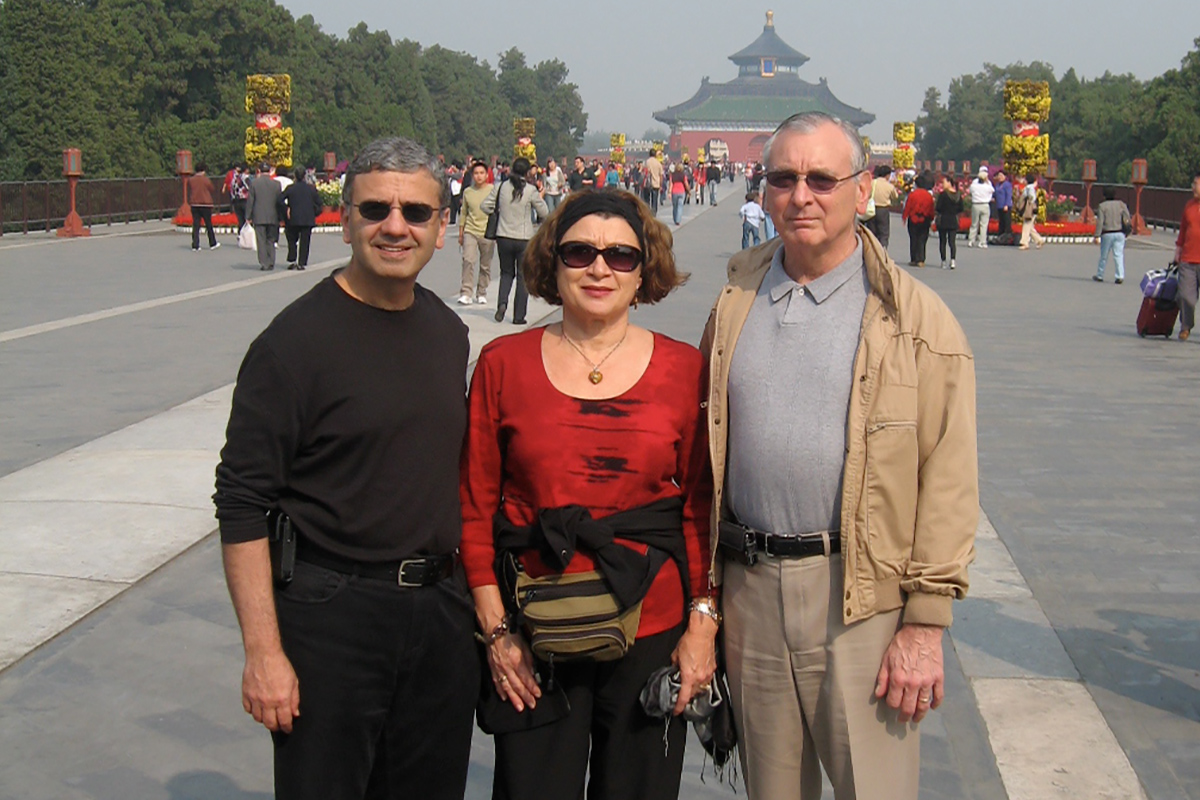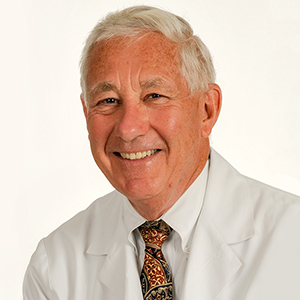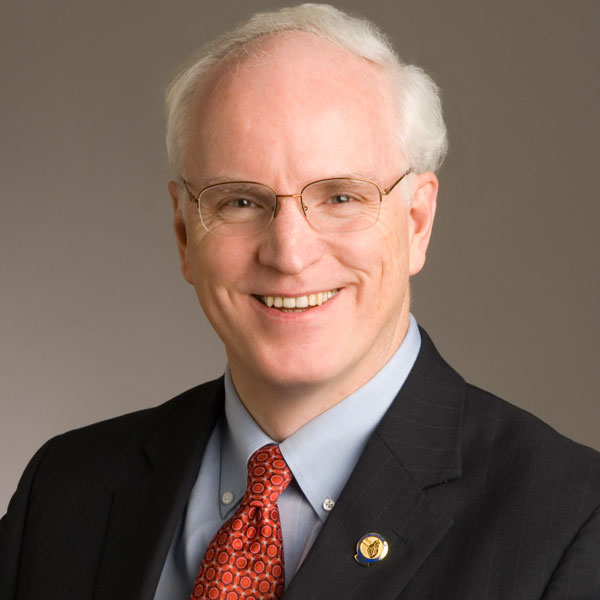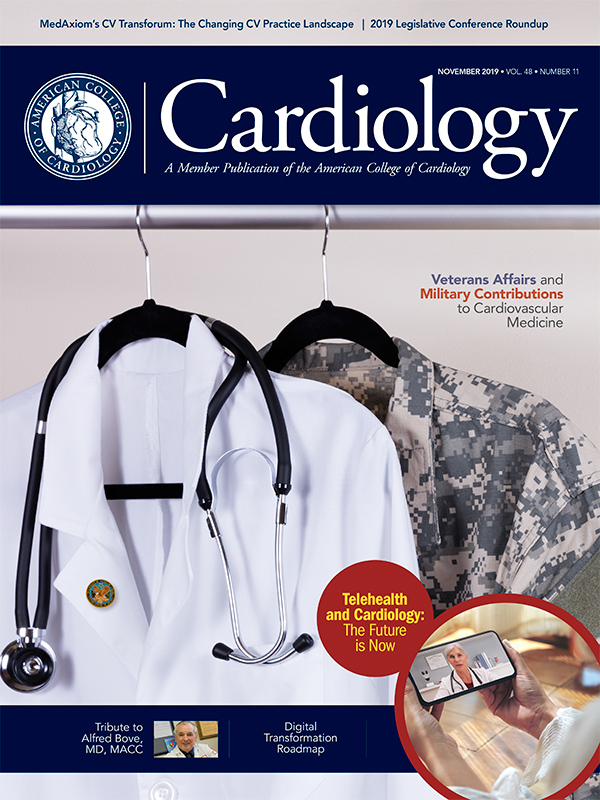Feature | A Tribute to Alfred A. Bove, MD, PhD, MACC
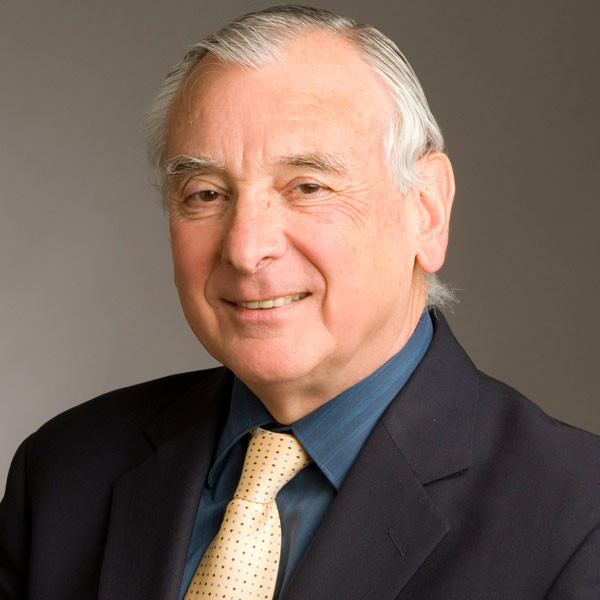
ACC Past President Alfred A. Bove, MD, PhD, MACC, a true cardiovascular innovator, educator and patient advocate, passed away on Oct. 17. Bove served as an editor-in-chief of Cardiology, and here we pause to pay tribute to a leader, colleague and friend. He touched the lives of everyone he met and we take solace in the legacy he leaves behind.
Bove earned his bachelor's degree in electrical engineering from Drexel University in 1962 and earned his medical degree and doctor of physiology degree from Temple University Medical School in 1966 and 1970, respectively.
Following a medical internship and residency at Temple Hospital, and a postdoctoral fellowship at both Temple and the Mayo Clinic, Bove served for two years in the U.S. Navy as an undersea medical officer and at the Naval Medical Research Institute.
He remained in the U.S. Naval Reserve for 33 years, during which he served as part of a mobile hospital staff in Operation Desert Storm in 1991, before retiring in 1998.
Aside from a short time at the Mayo Clinic in the early 1980s, Bove spent most of his cardiovascular career at Temple, serving in positions ranging from associate dean to section chief in cardiology. He focused on coronary endothelial function, myocardial function in valvular heart disease and heart failure, exercise physiology, diving and hyperbaric medicine, and medical informatics.
During his career, Bove published well over 200 original research papers; authored texts on coronary disease, exercise medicine, and diving medicine; and received numerous awards for his work in cardiovascular medicine and environmental medicine.
In addition to his role as president (2009-2010), where he emphasized the importance of the patient in all aspects of the College's work, Bove's contributions to the ACC are many. He served on the College's Board of Trustees from 2002 to 2013 and was the first editor-in-chief of ACC's original CardioSource.org website. Until recently, Bove also held the position of editor-in-chief of ACCEL, the College's audio journal.
Bove participated in several ACC Member Sections, including the Sports and Exercise Cardiology Section, along with numerous committees, task forces and work groups throughout his career. His vision and leadership helped to shape the College's programs and policies in areas such as appropriate use criteria implementation, health information technology, advocacy, sports and exercise cardiology, and more.
In his "spare time," Bove was an avid runner and possessed a true passion for sports and exercise cardiology, serving at one point as the team cardiologist for the Philadelphia 76ers. Having been trained in diving and submarine medicine while in the Navy, diving medicine was another personal and professional passion, leading him to found Underwater Medicine Associates, an educational organization devoted to diving medicine.
"Fred Bove advocated for patients every day, even dedicating his ACC Presidential Year to a focus on the patient," says ACC President Richard Kovacs, MD, FACC. "This approach, and his humility, has had a lasting affect on my own career."
"Dr. Bove was committed to ensuring the College was prepared to meet the needs of cardiovascular clinicians and patients around the world, whether it was harnessing the latest technology for information sharing and learning, encouraging the development of International Chapters and on-the-ground programming, or training the next generation in areas like sports and exercise cardiology," says ACC CEO Tim Attebery, DSc, MBA, FACHE. "His legacy is woven into the very fabric of the College and all of those whose lives he touched."
"Fred was very proud of his engineering background and was always trying to find ways to make things better. For example, when he took on ACCEL his goal was to make it easily accessible to everyone, which meant leveraging new technologies and moving it from CD to SmartPhone," shares ACC Past President C. Richard Conti, MD, MACC.
"Aside from his obvious talent as a cardiologist and an investigator, Fred was a spectacular human being and a bit of a Renaissance man who was as enthusiastic about deep sea diving as he was cardiology," shares past ACC President and former JACC Editor-in-Chief Anthony N. DeMaria, MD, MACC. "He had a deep-down integrity and his thoughtfulness and kindness were unmatched. He epitomized everything you could ever want in a leader."
"Dr. Bove was a warm, sincere, and beneficent physician who always put the interest of the patient first," says ACC Executive Vice President William J. Oetgen, MD, FACC. "He is, and always has been, an inspiration to those cardiologists who follow behind him."
A Remembrance of Fred Bove: Engineer, Physician, Teacher, Diving Guru – Friend and Colleague
Fred Bove was the ultimate multitasker. Who else could chair a meeting, work a computer, hold a phone conversation, run ACCEL, be editor of this Cardiology magazine, care for patients, train fellows and colleagues, make sure the Philadelphia 76ers were healthy, and be a good human being all at the same time?
Fred had an easy answer for any inquiry as to how he managed it all – his engineering background. I never quite understood exactly what that meant as I marveled at his range of abilities. But I do know that Fred, with a pocket knife, was more formidable and competent at fixing anything than a gaggle of physicians with a full toolbox.
The ACCEL studio will never be the same without him making sure the equipment works. Before there was a thing called "telemedicine," Fred was using the infant internet to help care for his patients with heart failure and cardiovascular risk factors. Not for finding information, but for the internet's communication and teaching abilities. Really Fred? In 1992?
Around 1999, a group of us was pulled together by the ACC to establish a College teaching venue using the internet. Originally called KDE for Knowledge Development Enterprise, it soon became ACCcardio, then CardioSource.org and finally ACC.org.
Clearly Fred needed to lead it because he actually understood what was going on. More importantly, he understood its potential. He soon was regaling us with HTML's, .com's, .net's and other unknowns that his engineering background apparently made simple for him. Have ACCEL on your phone? Thank Fred.
Fred and I kept reminding each other that the ACC, at its core, is a "College," and that colleges are for teaching. In that "College," Fred excelled. He taught his patients how to communicate with him, taught more than a few generations of FITs and helped train transplant surgeons in the intricacies of heart failure. And of course, he ran all the ACC's teaching venues on the internet and more.
He loved to teach. But I believe that love was overshadowed by his one jealous mistress. More than once, while at an early meeting of the CardioSource group in Philly, Fred would announce that the meeting would be terminated a bit early. The explanation? He had to go to his teaching seminar in some exotic place that allowed him to scuba dive and teach others about the complexities of diving medicine.
More than once I sought his expertise from my office when I cared for a patient who had experienced sudden pulmonary edema while ascending to the surface or had a mini stroke due to a patent foramen ovale. Would the pulmonary edema return? Should the PFO be closed? Fred knew!
Mary Mosley, one of the many folks who do yeoman's work behind the scenes to make this magazine appear each month, sent me this memory of being a benefactor of Fred's seminars on medical writing: one of Fred's pet peeves was the rush to dramatize the results of all those "groundbreaking/late-breaking" clinical trials we hear of at each major meeting.
Fred's counsel was to take a bit of time and understand what the trial(s) actually showed rather than quickly join a prematurely enthusiastic (or negative) crowd. Not bad advice for all of us from FITs to Emeriti to news reporters to medical writers! Mary ended by remembering his "steadfast adherence to the highest standards." Spot on, Fred!
Remembering a Giant: Fred Bove
The cardiovascular world recently lost one of its giants: my colleague, friend and fellow Cardiology Editor-in-Chief Fred Bove, MD, PhD, MACC. He was a consummate professional, leading by example and inspiring patients and clinicians alike.
Advocacy for quality patient care, education and science was always his "True North" and provided an unsurpassed moral compass for his patients, friends and professional colleagues. His completely transparent approach to his recent personal medical issues was likely inspired by his 33 years of service as a Navy reservist and reminds me of the quote from George Pocock: "Men as fit as you, when your everyday strength is gone, can draw on a mysterious reservoir of power far greater. Then it is that you can reach for the stars. That is the way champions are made."
Fred's reach extended from well below the surface of the oceans to the stars. Some of his biggest accomplishments include his work to establish a long-term policy for ACC's international members and to expand our relations with other heart associations across the globe. I had the privilege of serving on this work group with him and to be inspired by his leadership.
This work led to the creation of an international strategy for the College and the creation of international ACC Chapters. The first four ACC International Chapters – Malaysia, Great Britain and Ireland, Brazil and China – were created during his presidential year. These initiatives by Fred helped move the College into being a truly international organization.
Fred also created the "Year of the Patient" during his presidency to highlight the central role that patients play in our professional lives and brought the concepts of patient empowerment and participation to the many functions of the College. He created the first Patient-Centered Care Work Group and was the catalyst for the further evolution of our CardioSmart initiative.
A scuba diver for over a half century, Fred was a world leader in underseas medicine and diving physiology and he was widely sought after for his expertise in hyperbaric oxygen therapy. He literally wrote the examination for certification in Undersea and Hyperbaric Medicine by the American Board of Preventive Medicine.
Fred served as the medical editor of Skin Diver magazine for 22 years and authored a textbook on diving medicine. He created an annual diving medicine course sponsored by Temple University that became a fixture in the diving medicine circuit.
Fred's commitment and passion for cardiology, patients and the College will truly be missed. Thankfully his legacy will live on in those whose lives he's touched and in the many programs he's helped to build.
Clinical Topics: Acute Coronary Syndromes, Anticoagulation Management, Arrhythmias and Clinical EP, Cardiac Surgery, Congenital Heart Disease and Pediatric Cardiology, Diabetes and Cardiometabolic Disease, Dyslipidemia, Geriatric Cardiology, Heart Failure and Cardiomyopathies, Invasive Cardiovascular Angiography and Intervention, Noninvasive Imaging, Pericardial Disease, Prevention, Pulmonary Hypertension and Venous Thromboembolism, Sports and Exercise Cardiology, Stable Ischemic Heart Disease, Valvular Heart Disease, Vascular Medicine, Anticoagulation Management and ACS, Implantable Devices, SCD/Ventricular Arrhythmias, Atrial Fibrillation/Supraventricular Arrhythmias, Cardiac Surgery and Arrhythmias, Cardiac Surgery and CHD and Pediatrics, Cardiac Surgery and Heart Failure, Cardiac Surgery and SIHD, Cardiac Surgery and VHD, Congenital Heart Disease, CHD and Pediatrics and Arrhythmias, CHD and Pediatrics and Imaging, CHD and Pediatrics and Interventions, CHD and Pediatrics and Prevention, Acute Heart Failure, Pulmonary Hypertension, Interventions and ACS, Interventions and Imaging, Interventions and Structural Heart Disease, Interventions and Vascular Medicine, Angiography, Nuclear Imaging, Hypertension, Sleep Apnea, Sports and Exercise and Congenital Heart Disease and Pediatric Cardiology, Sports and Exercise and ECG and Stress Testing, Sports and Exercise and Imaging, Chronic Angina
Keywords: ACC Publications, Cardiology Magazine, Acute Coronary Syndrome, Anticoagulants, Arrhythmias, Cardiac, Cardiac Surgical Procedures, Metabolic Syndrome, Angina, Stable, Heart Defects, Congenital, Dyslipidemias, Geriatrics, Heart Failure, Heart Failure, Angiography, Diagnostic Imaging, Pericarditis, Secondary Prevention, Hypertension, Pulmonary, Sleep Apnea Syndromes, Sports, Sports, Angina, Stable, Exercise Test, Heart Valve Diseases, Aneurysm, ACC History
< Back to Listings


